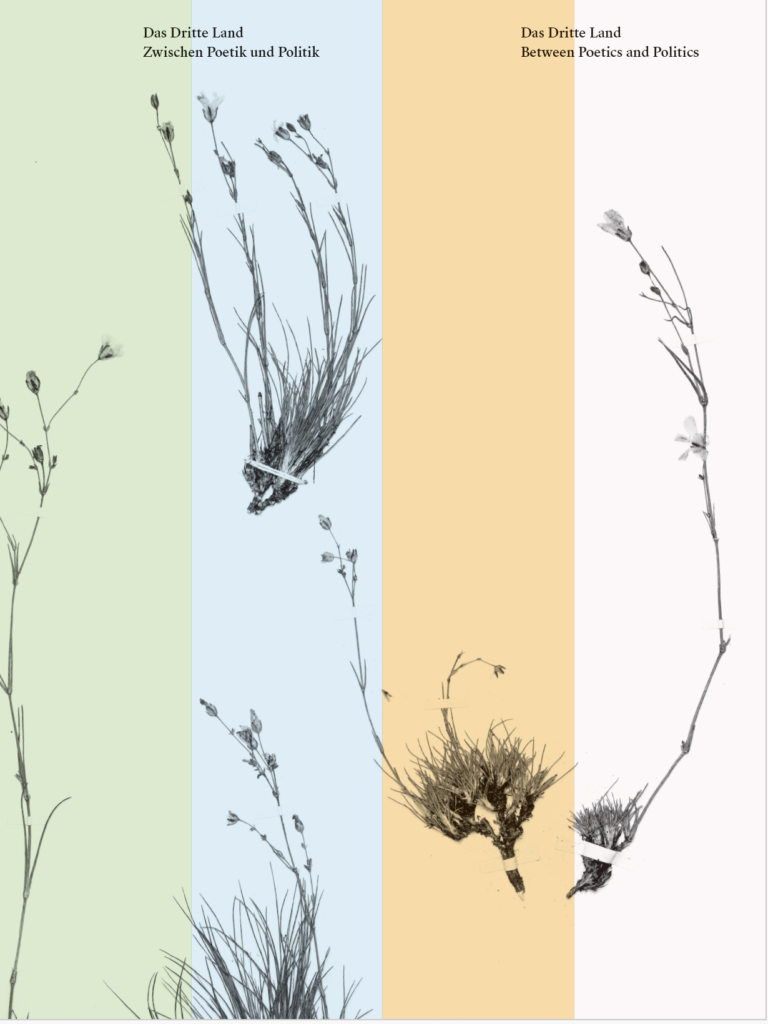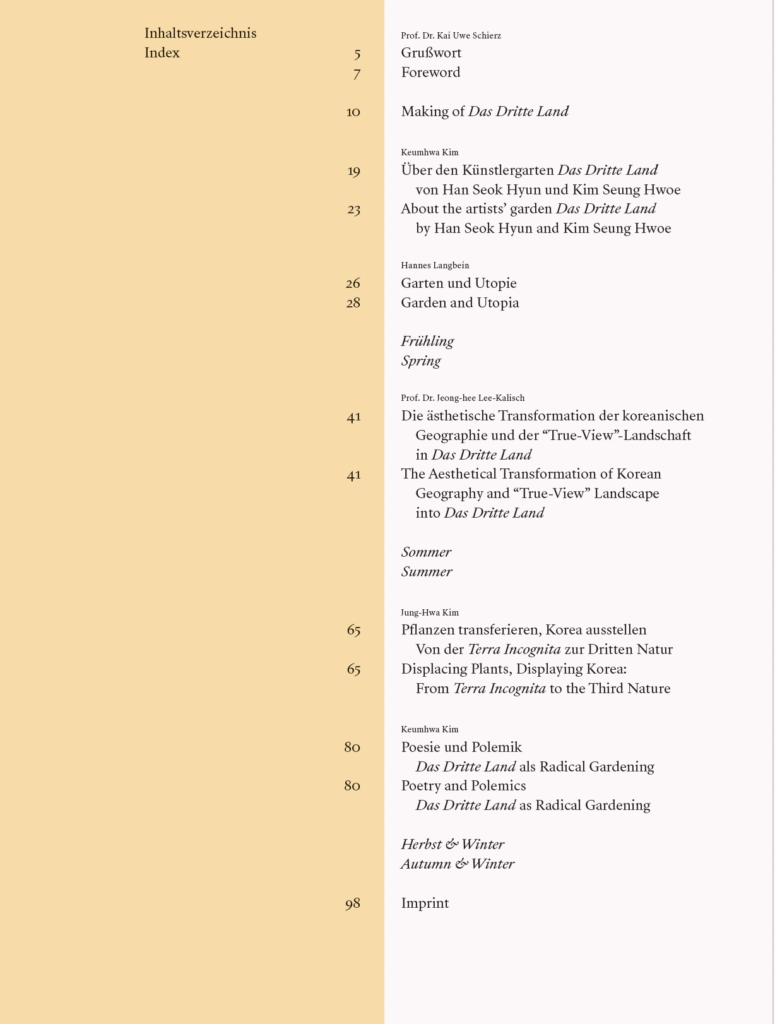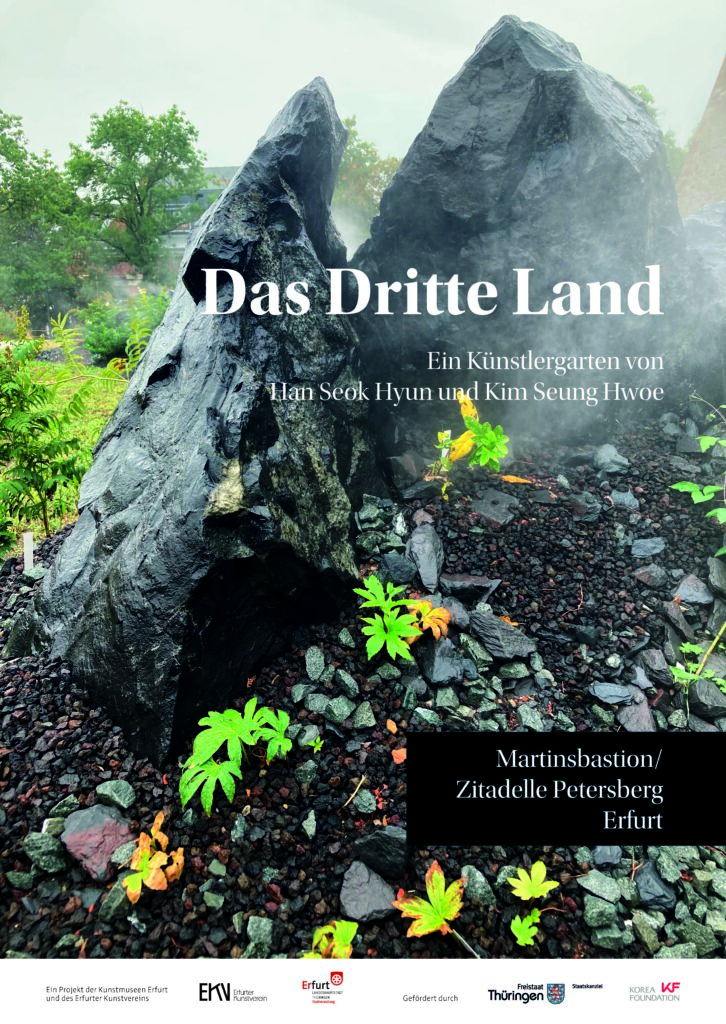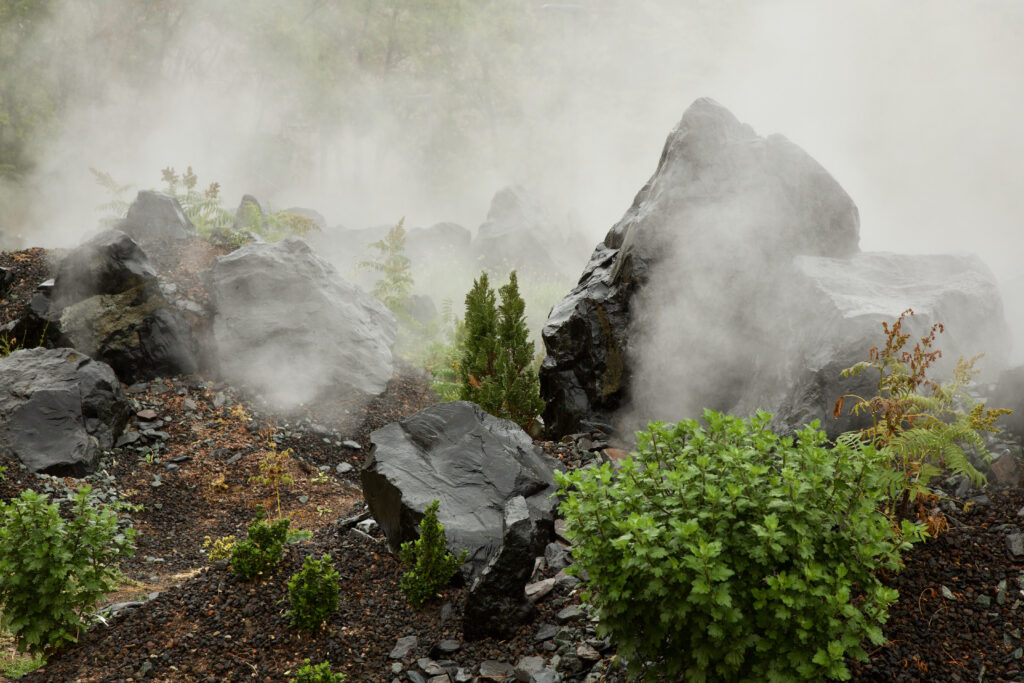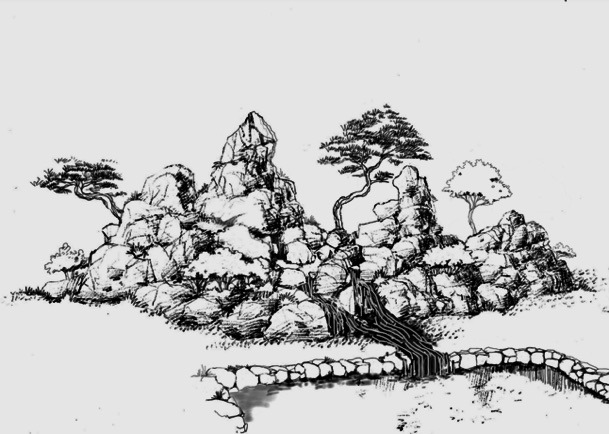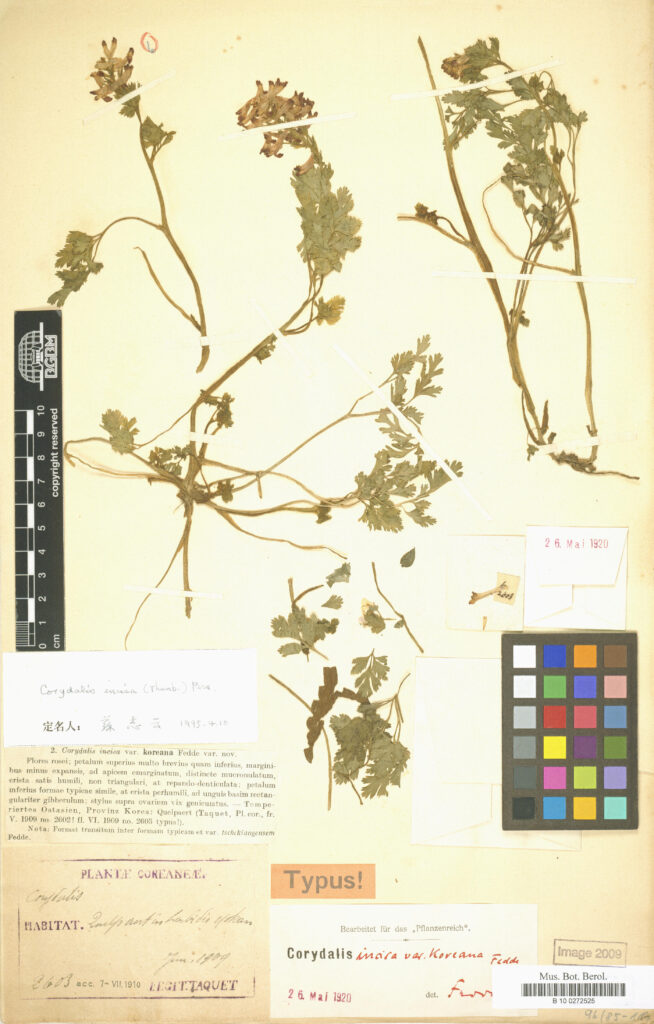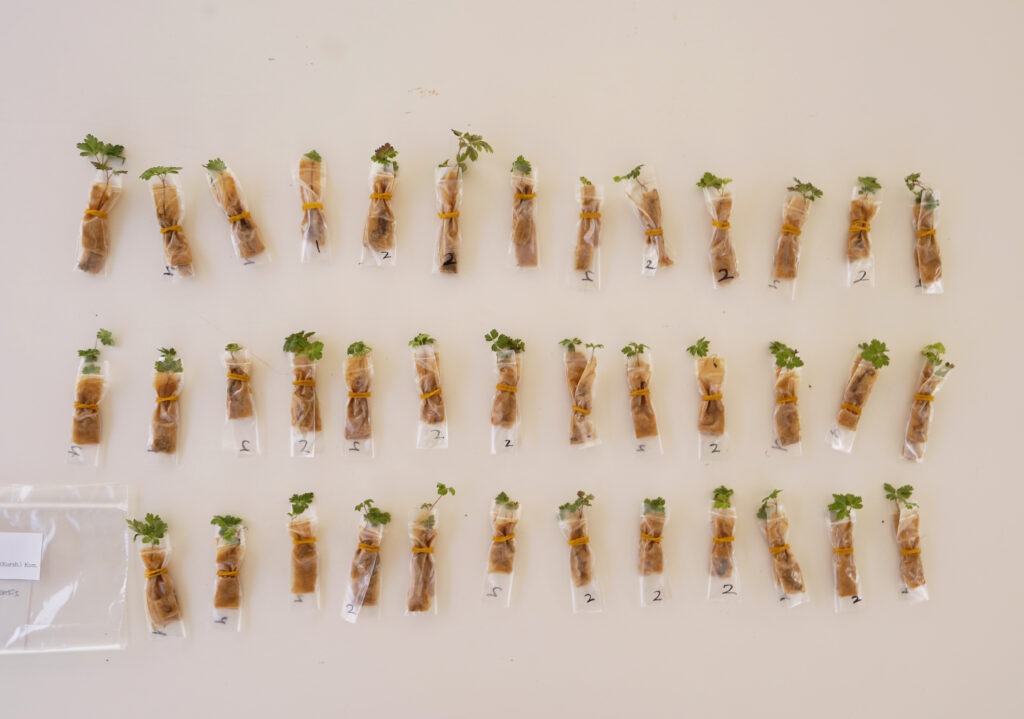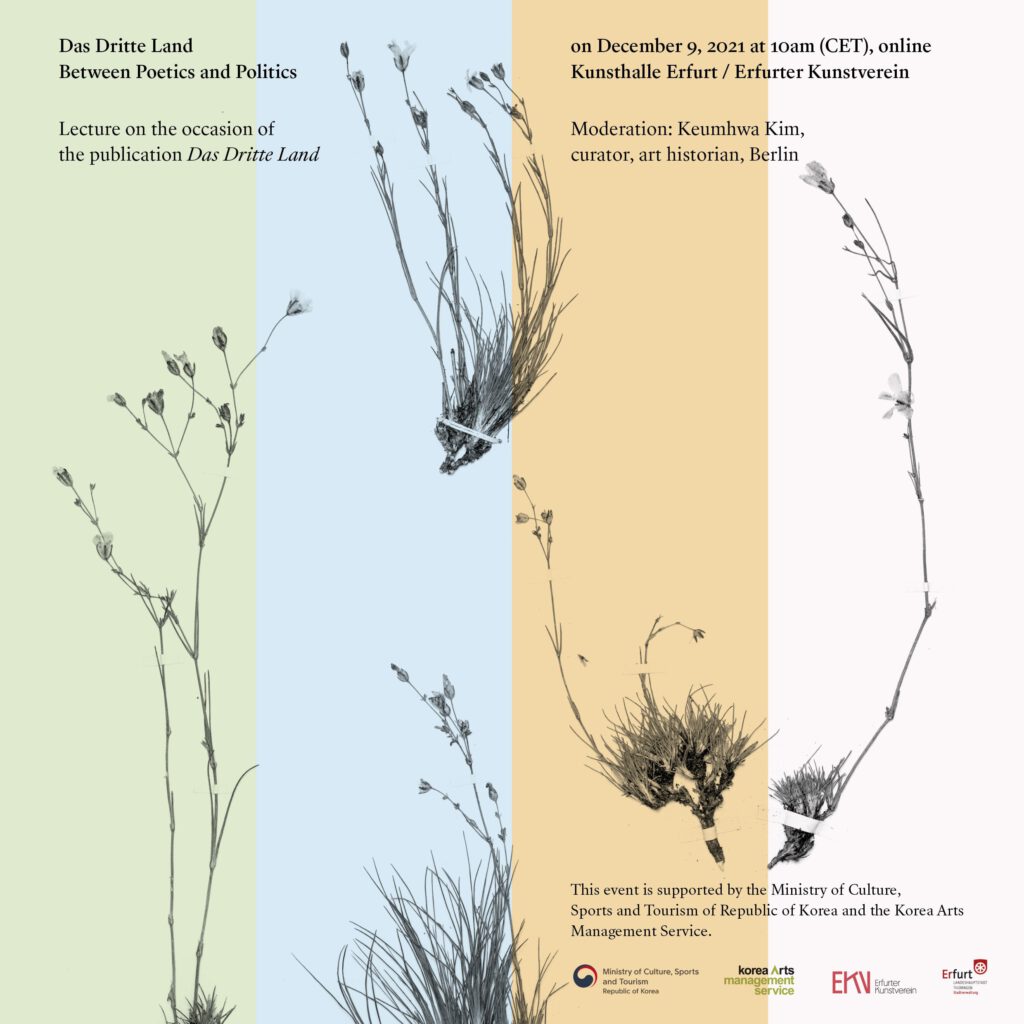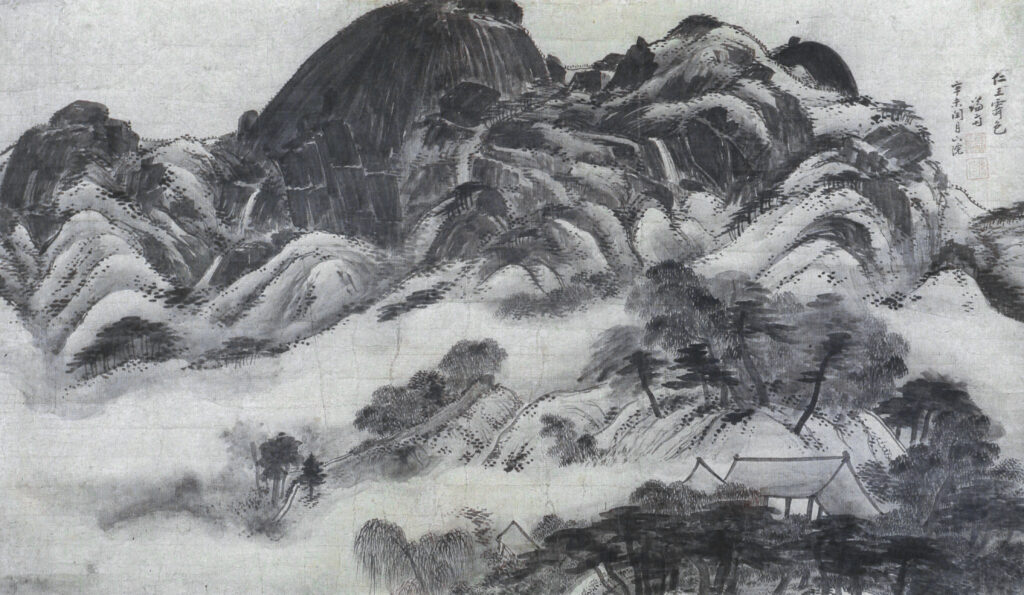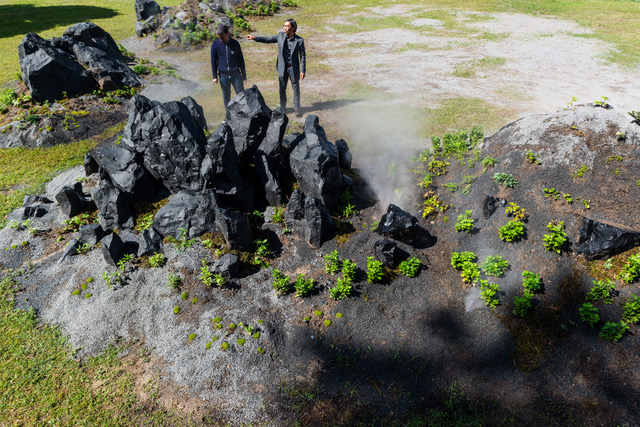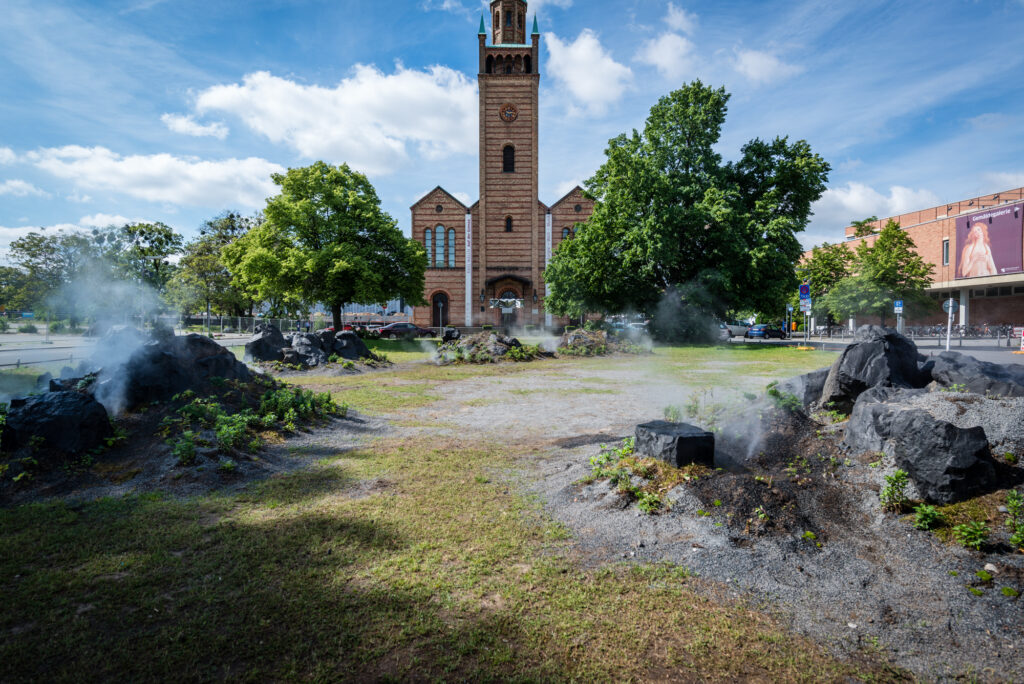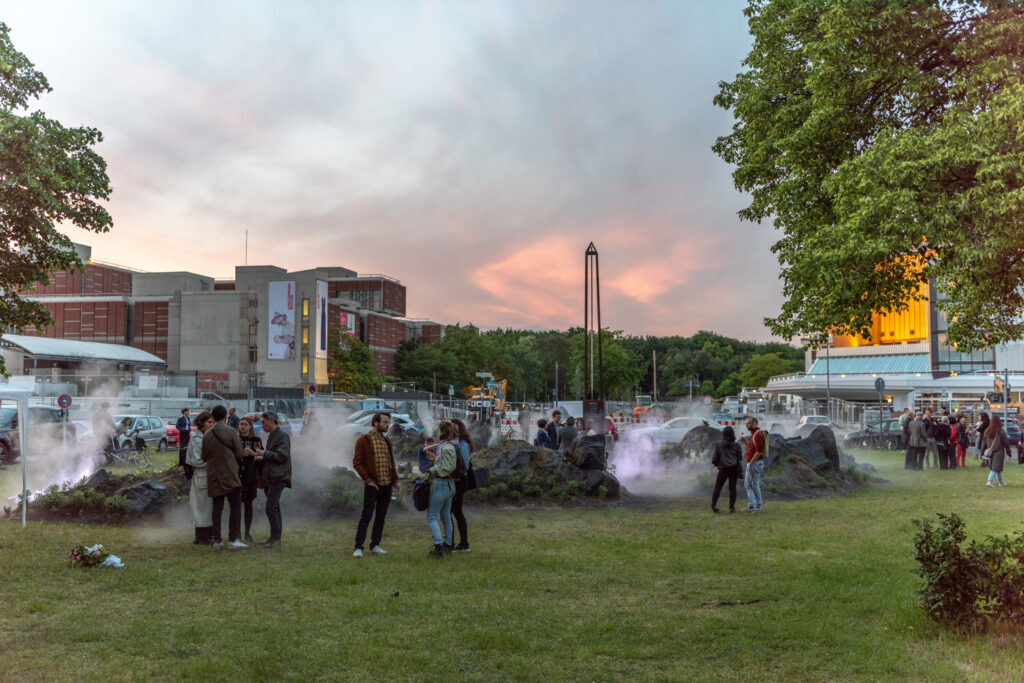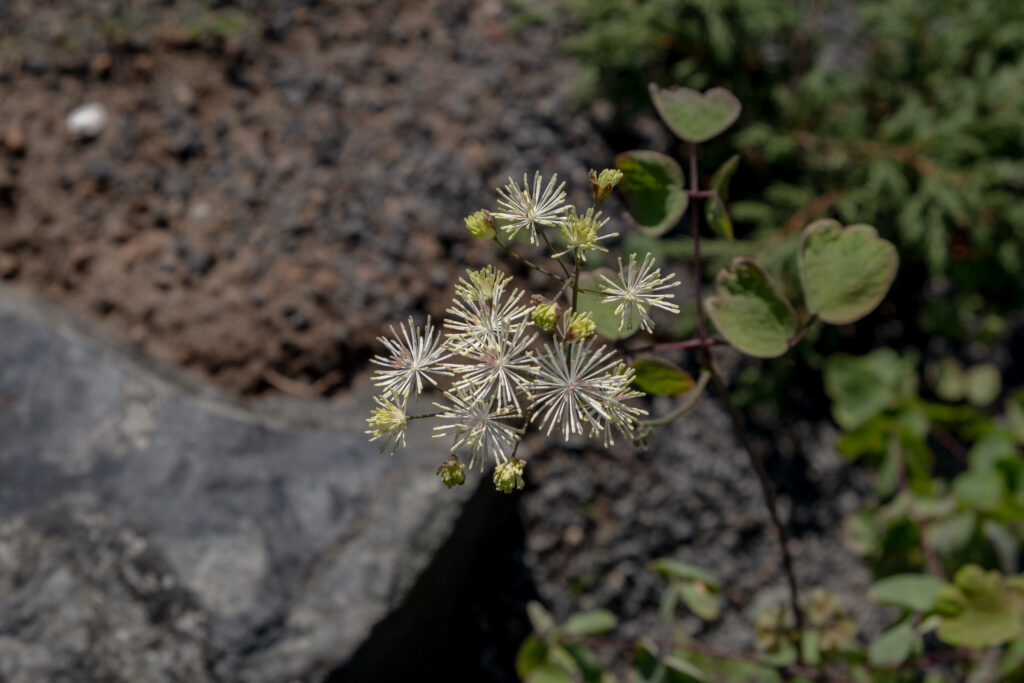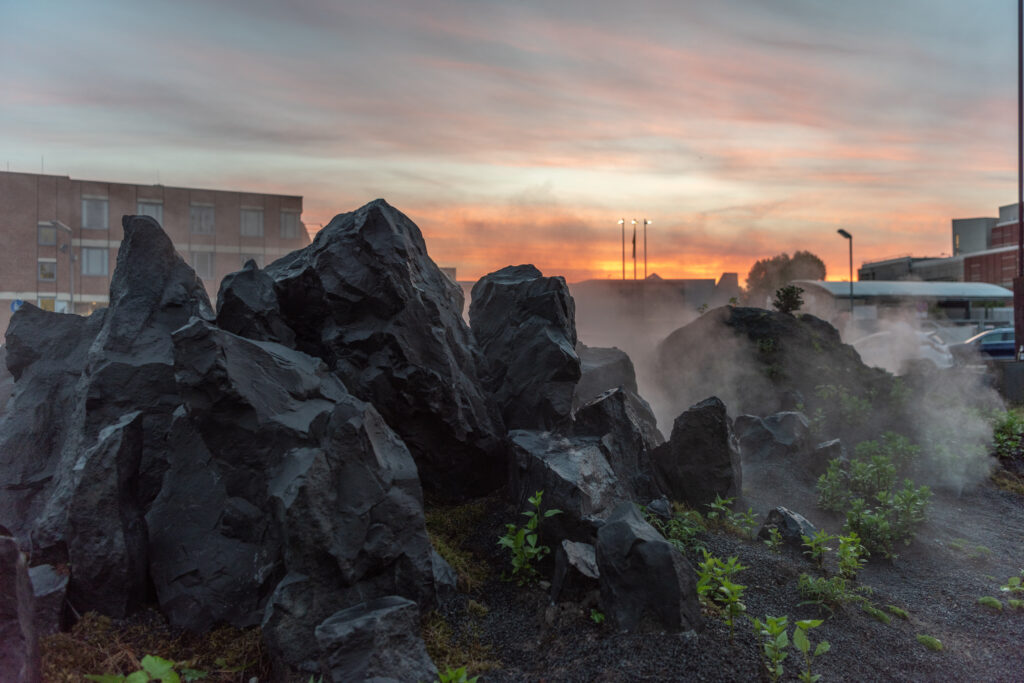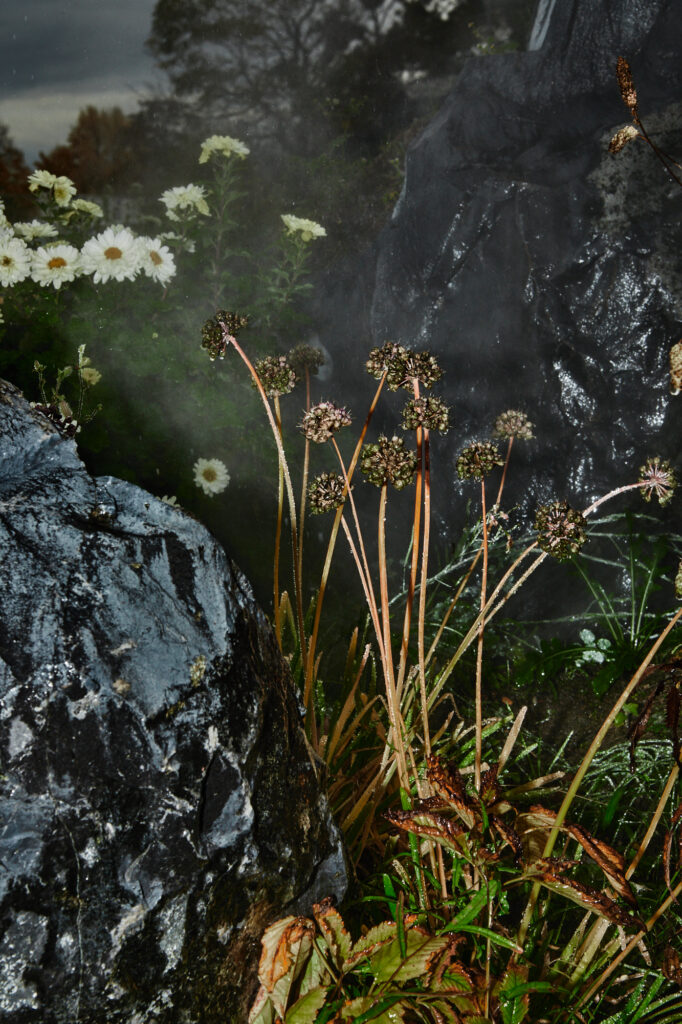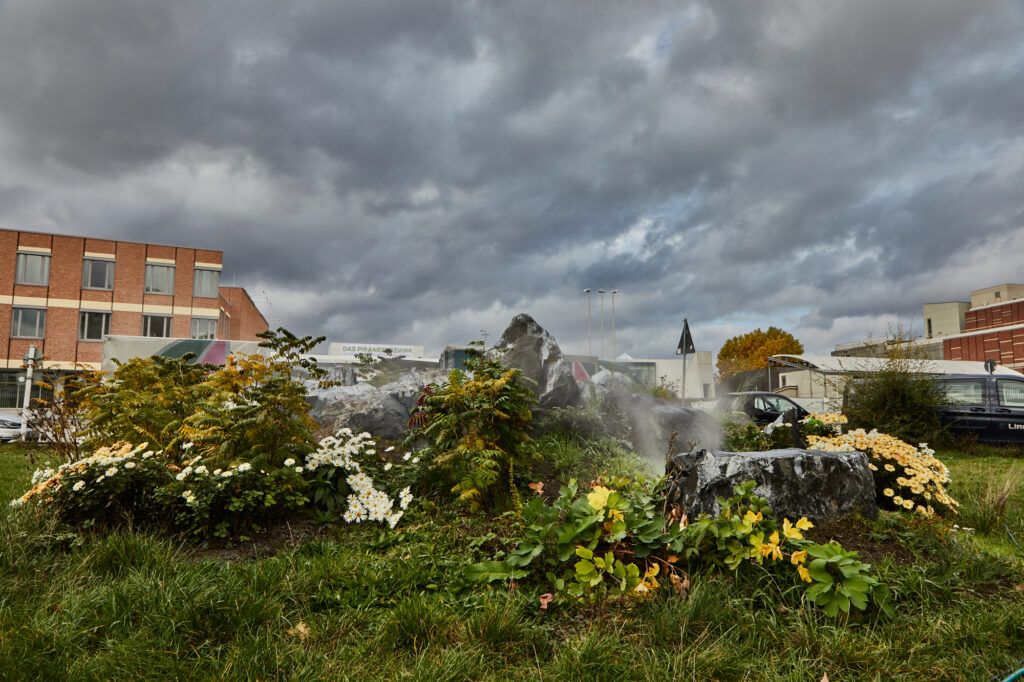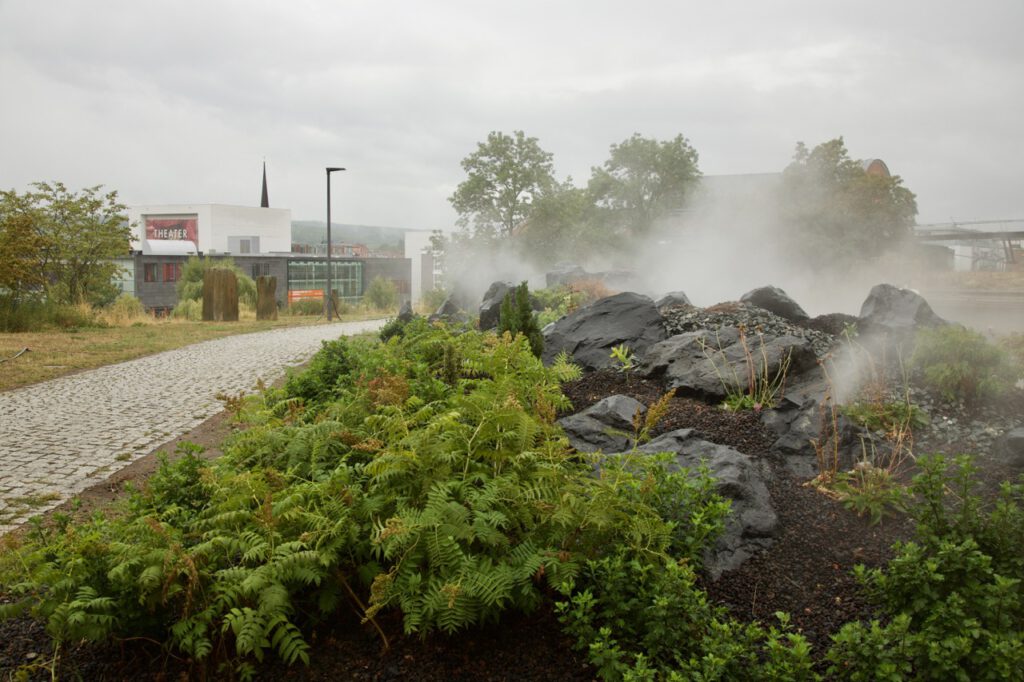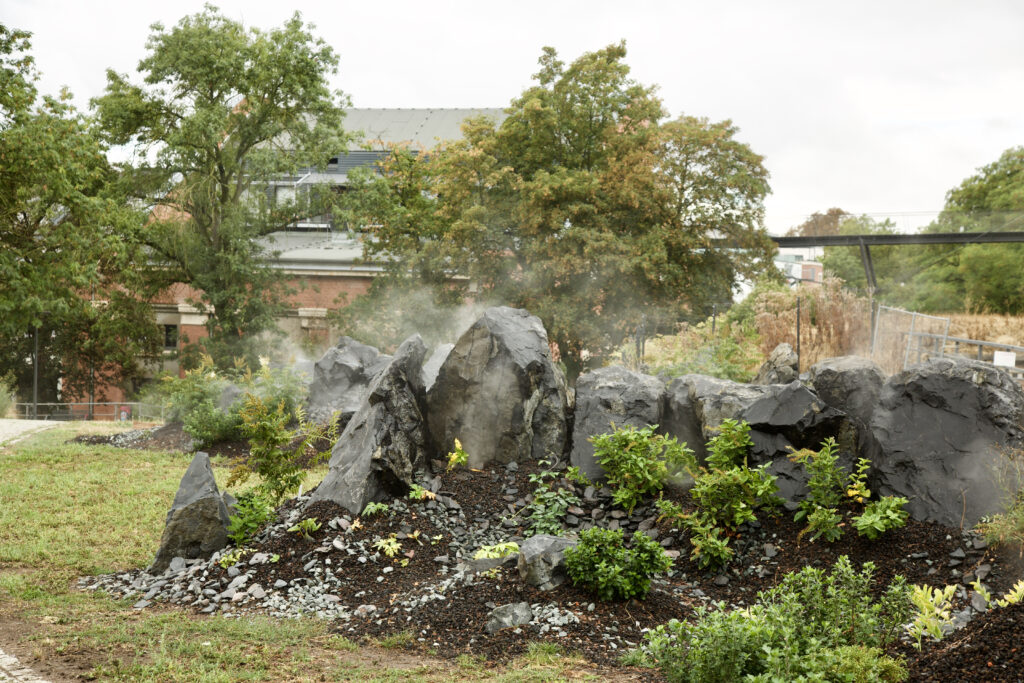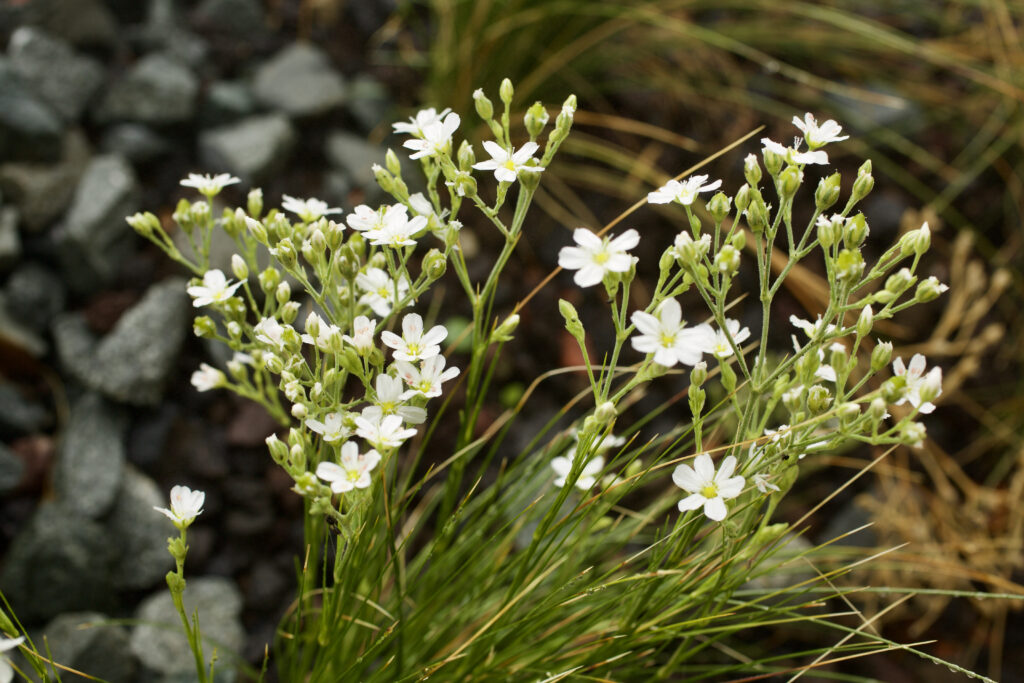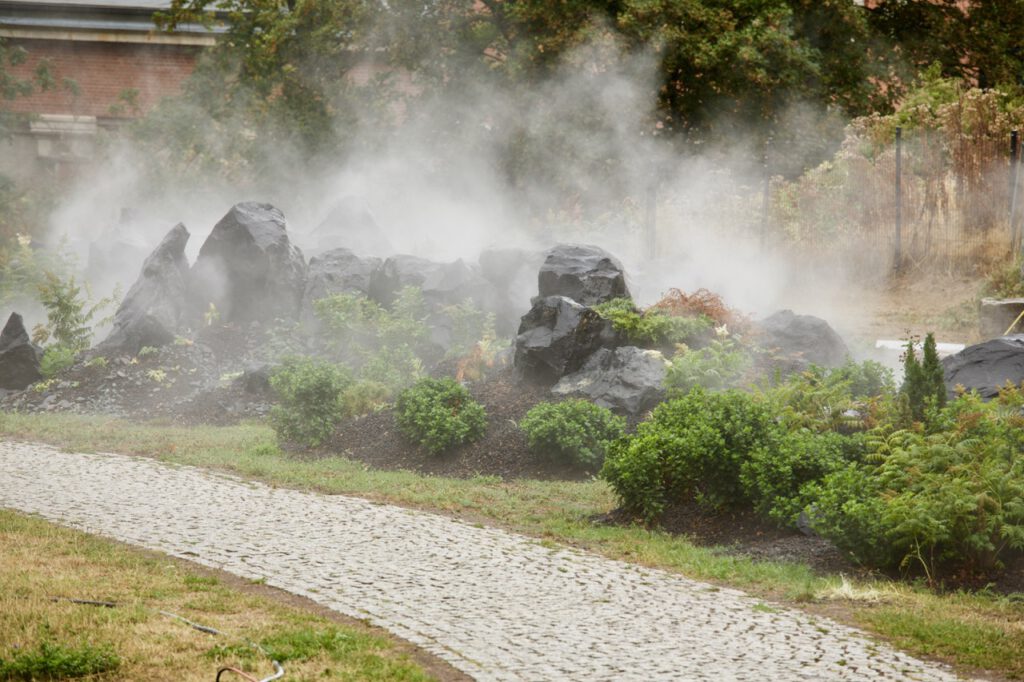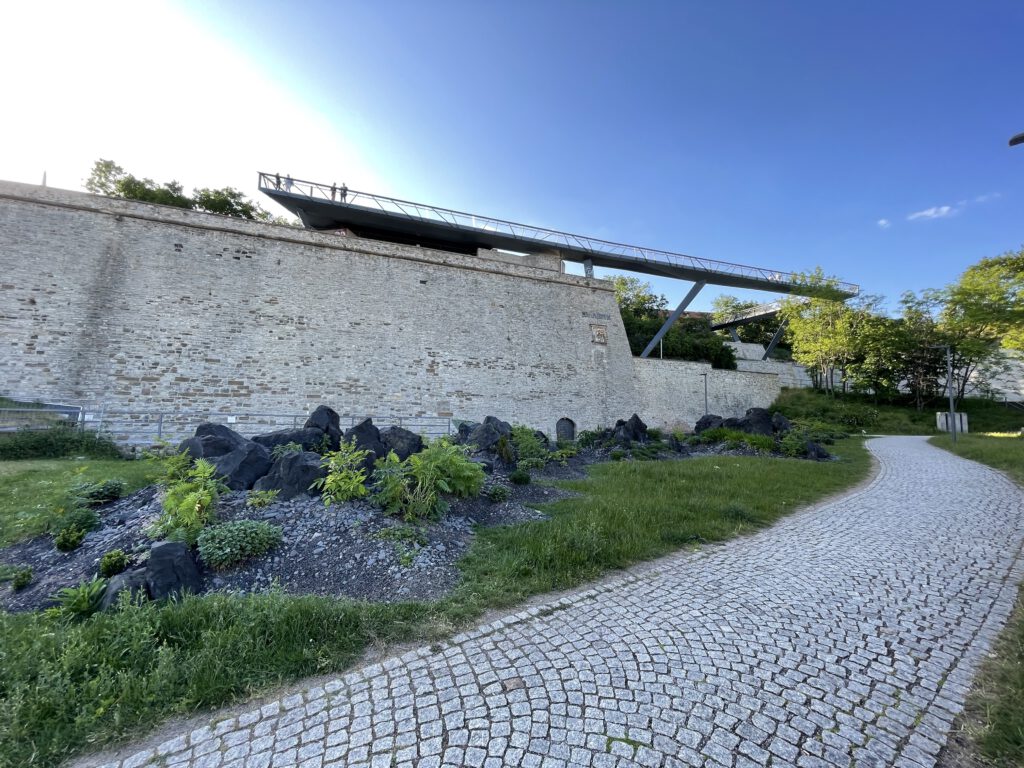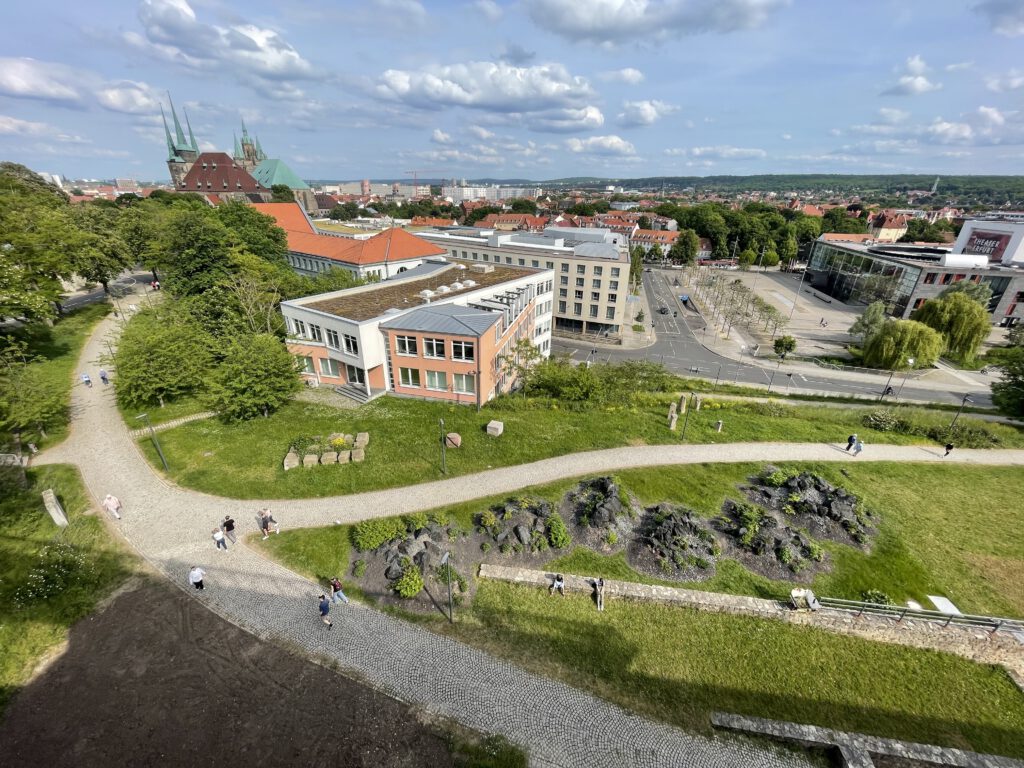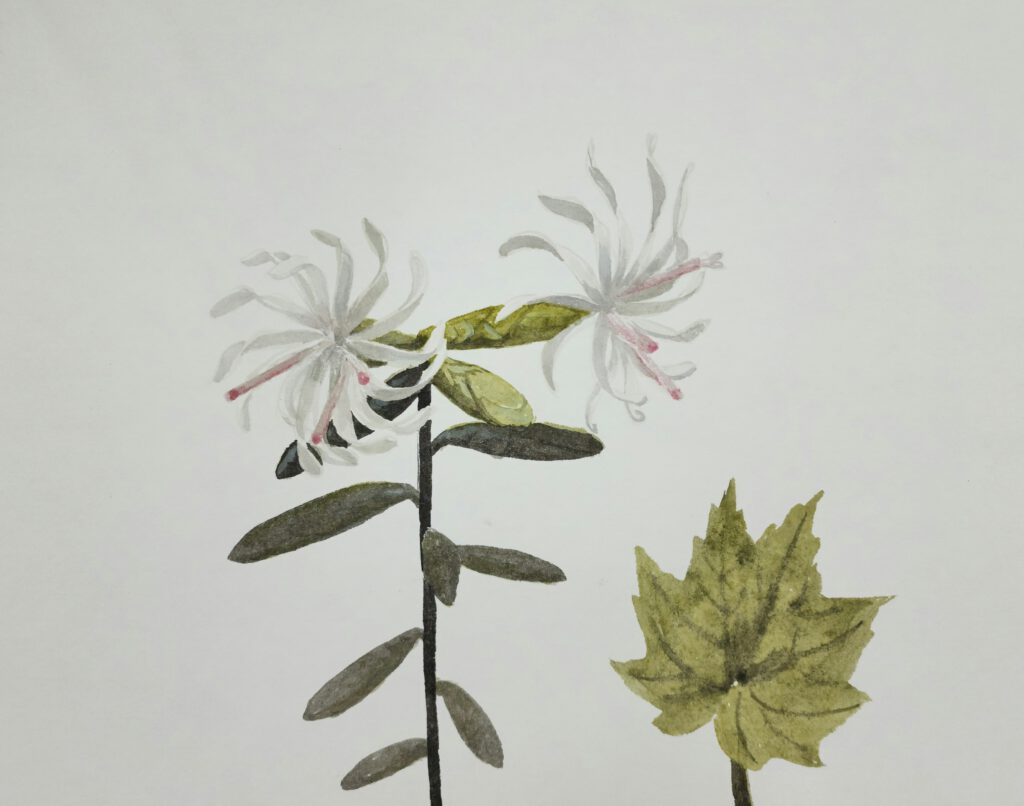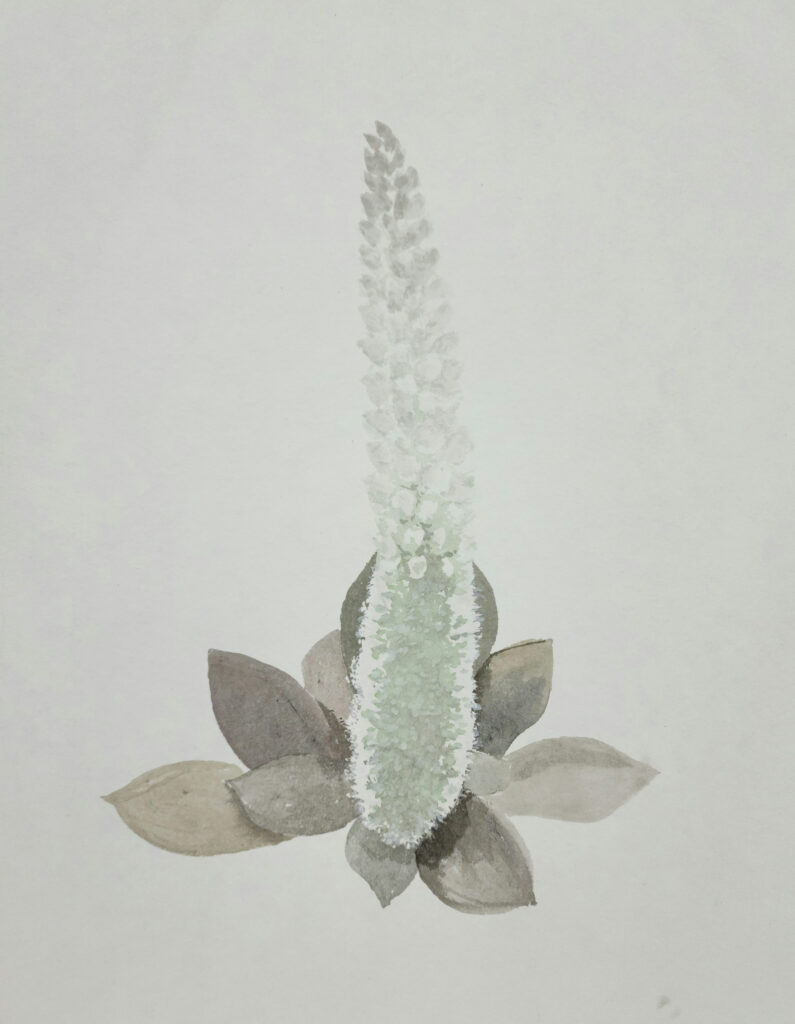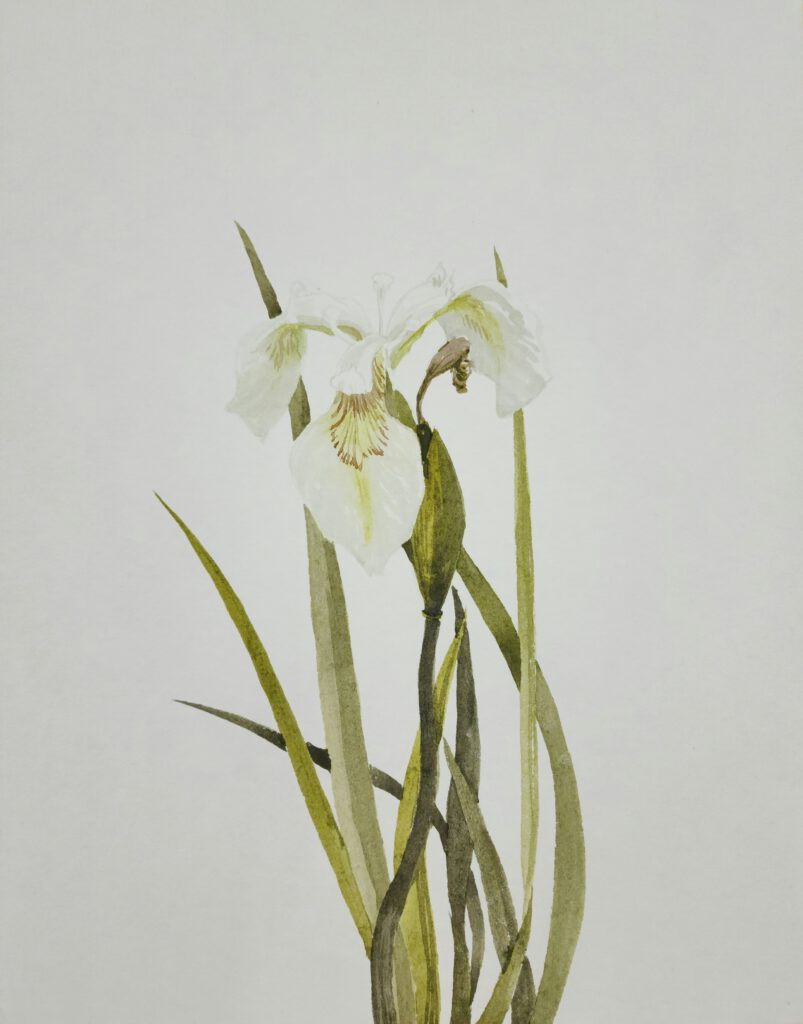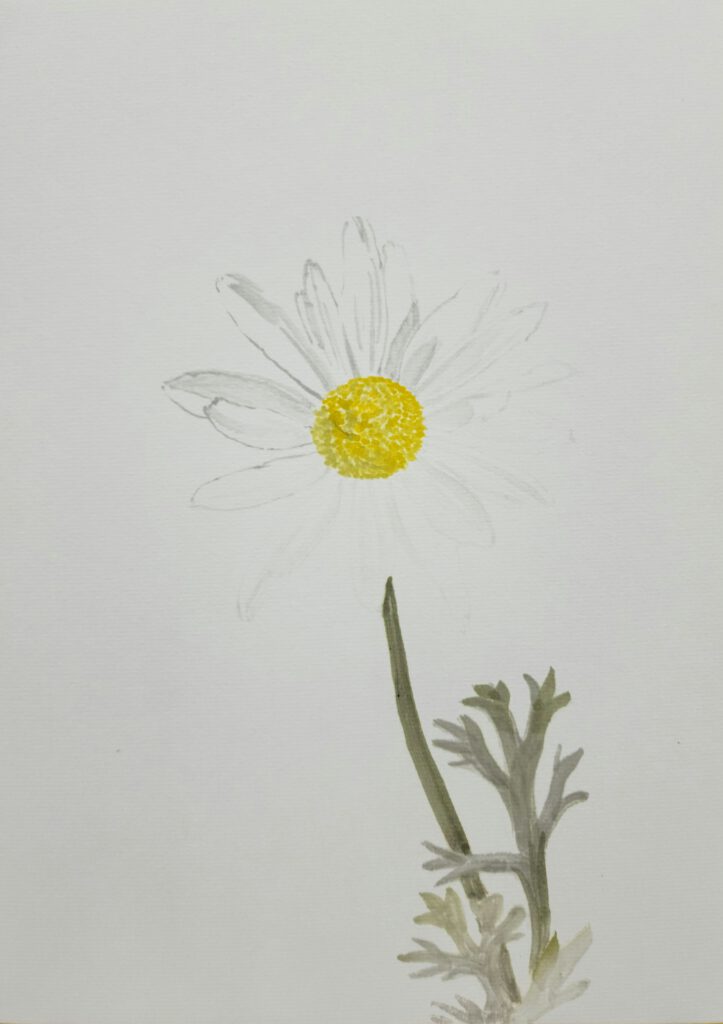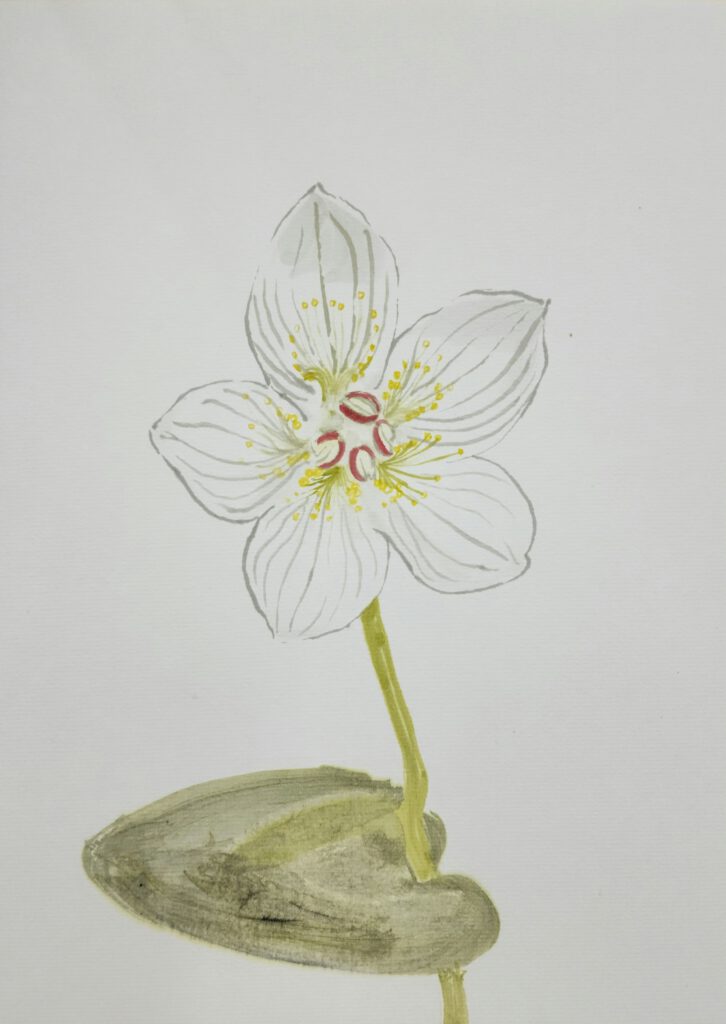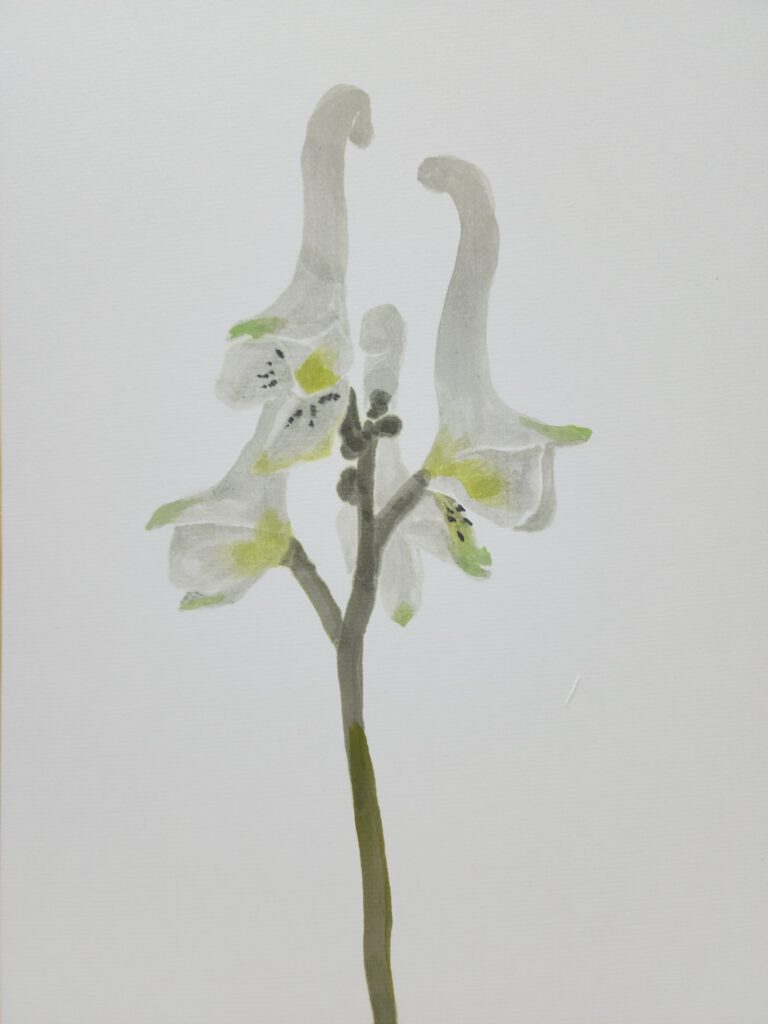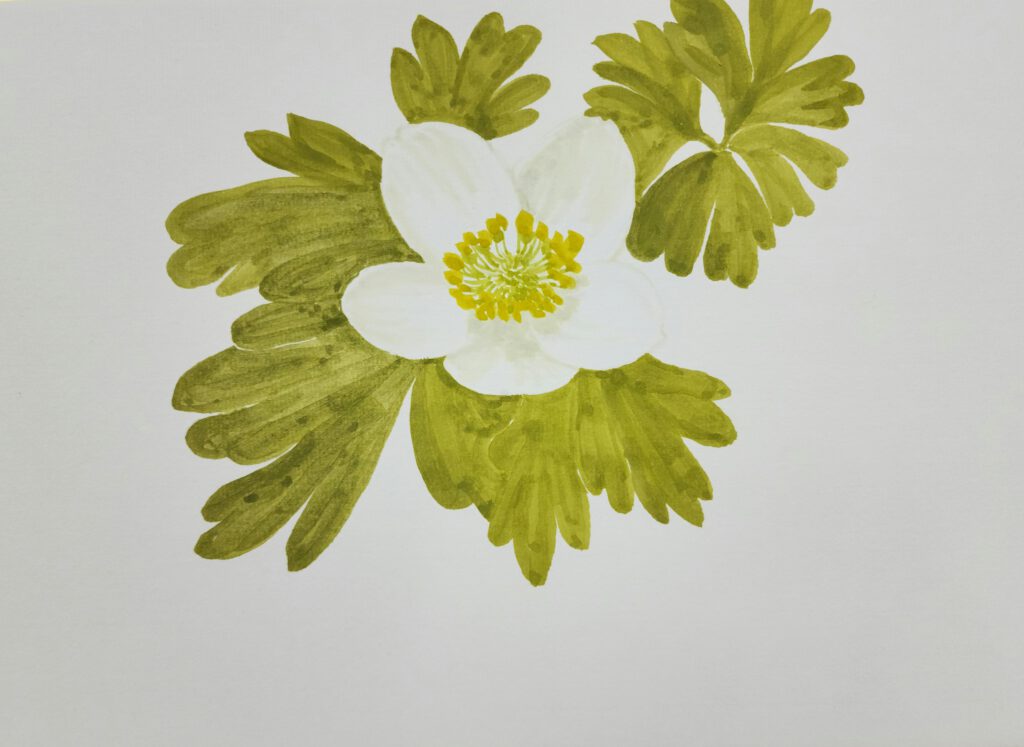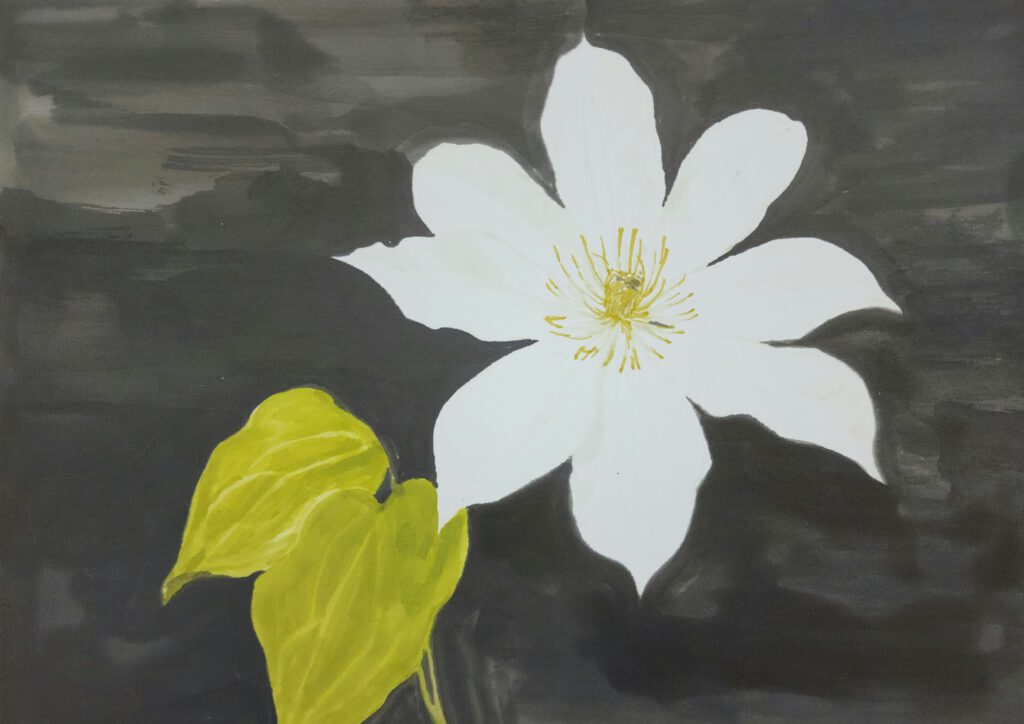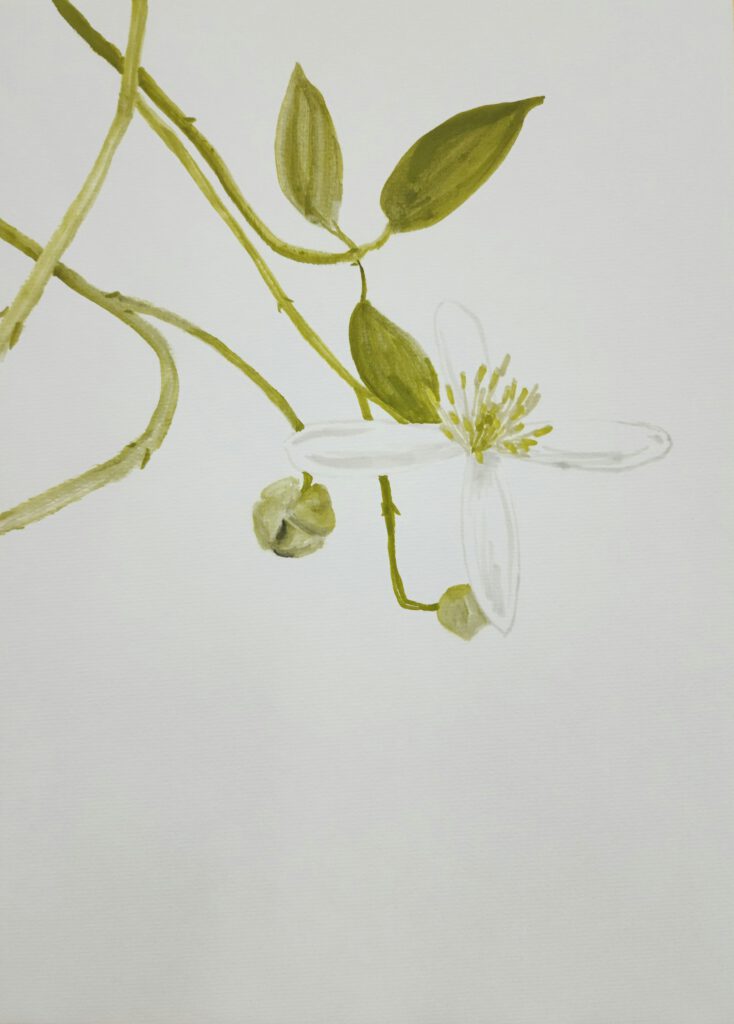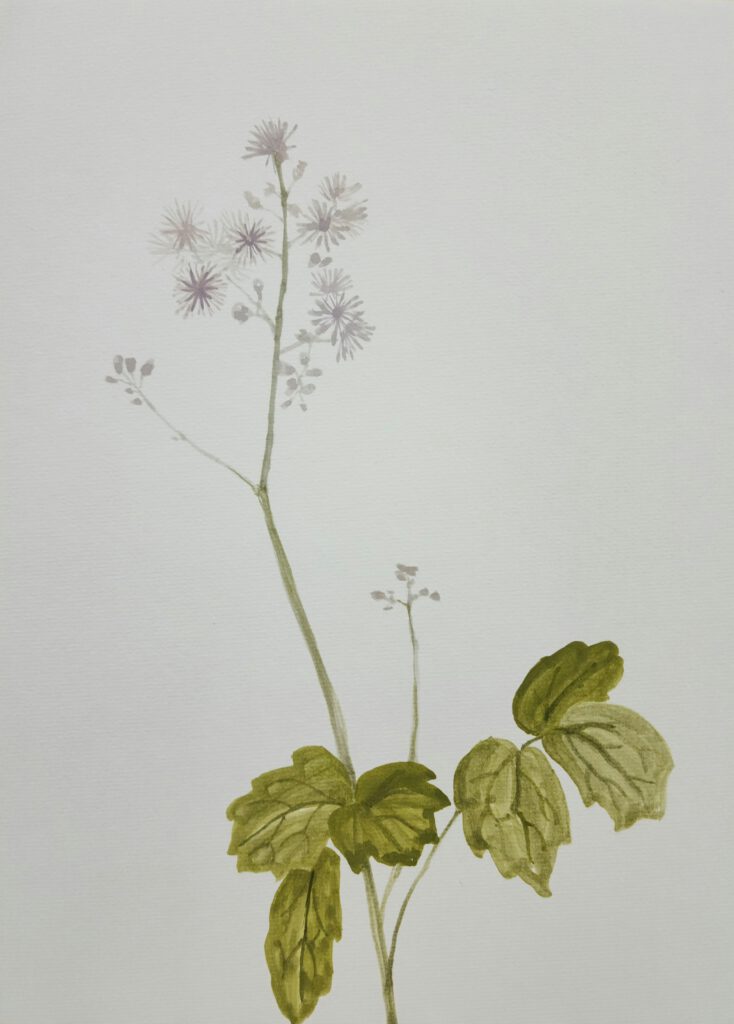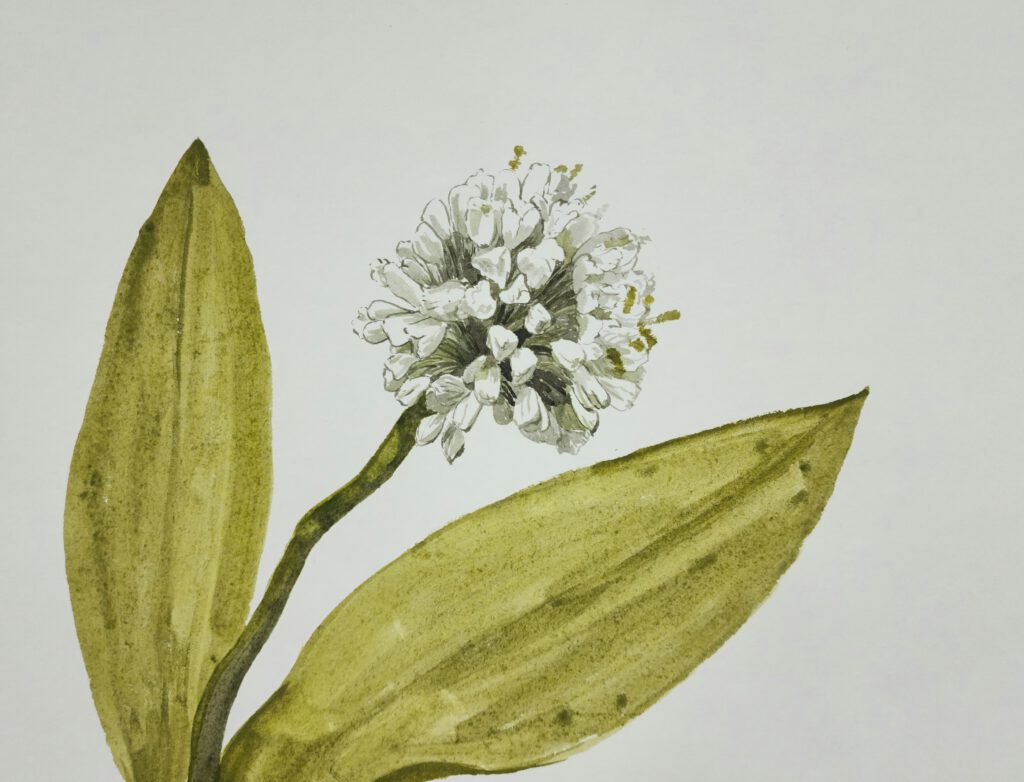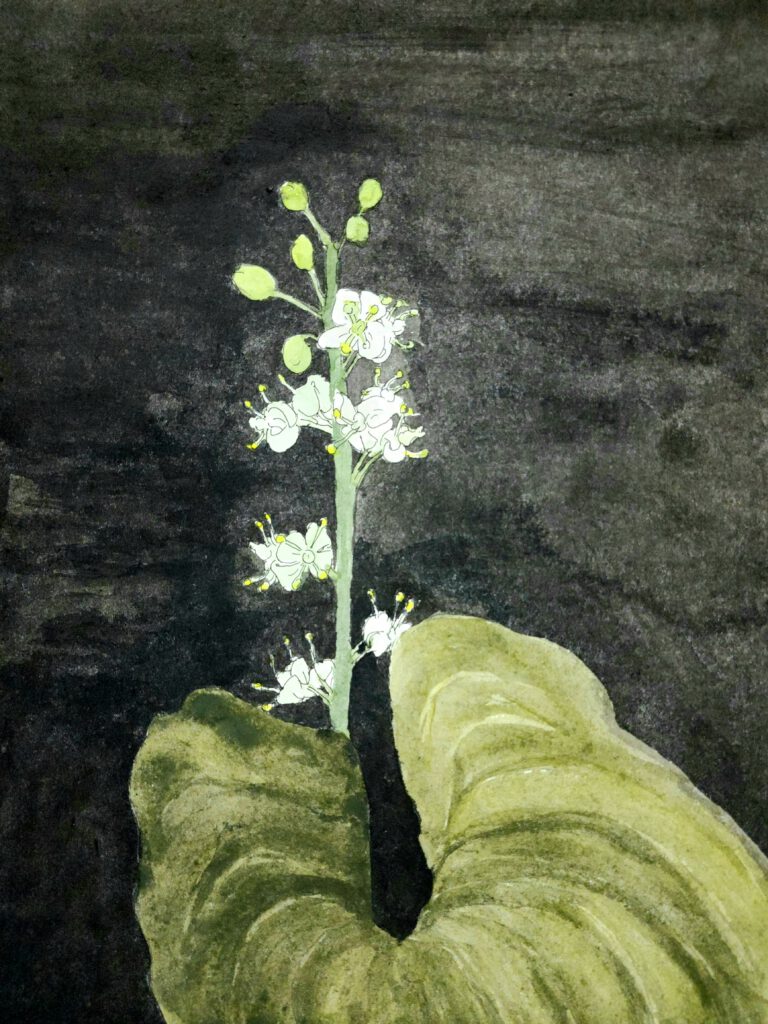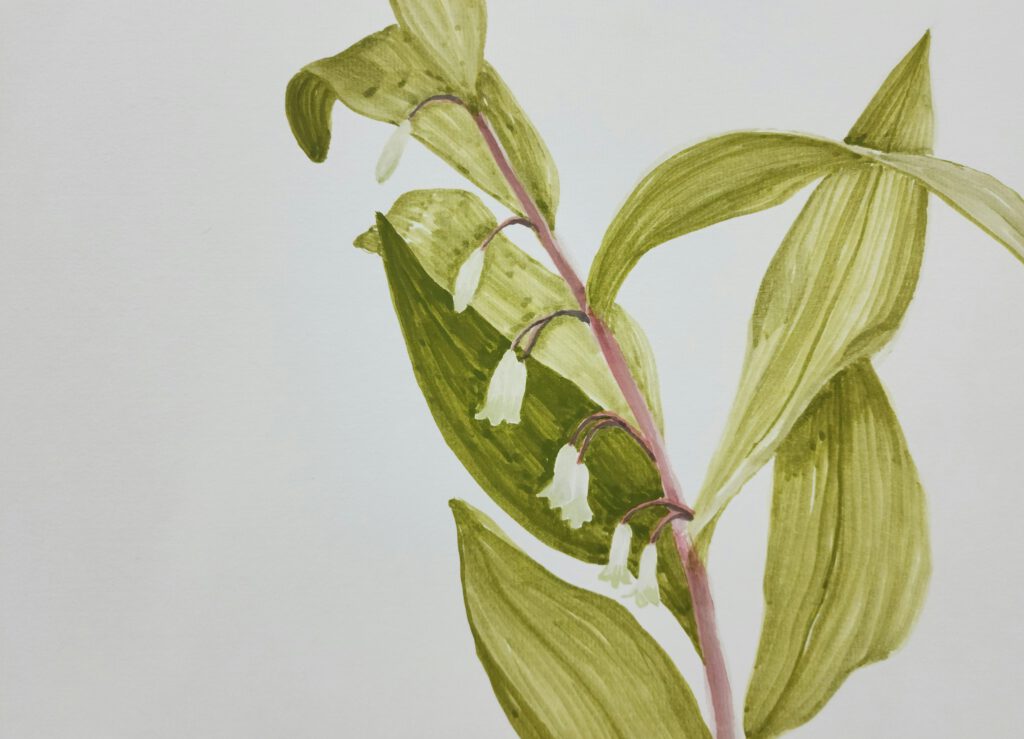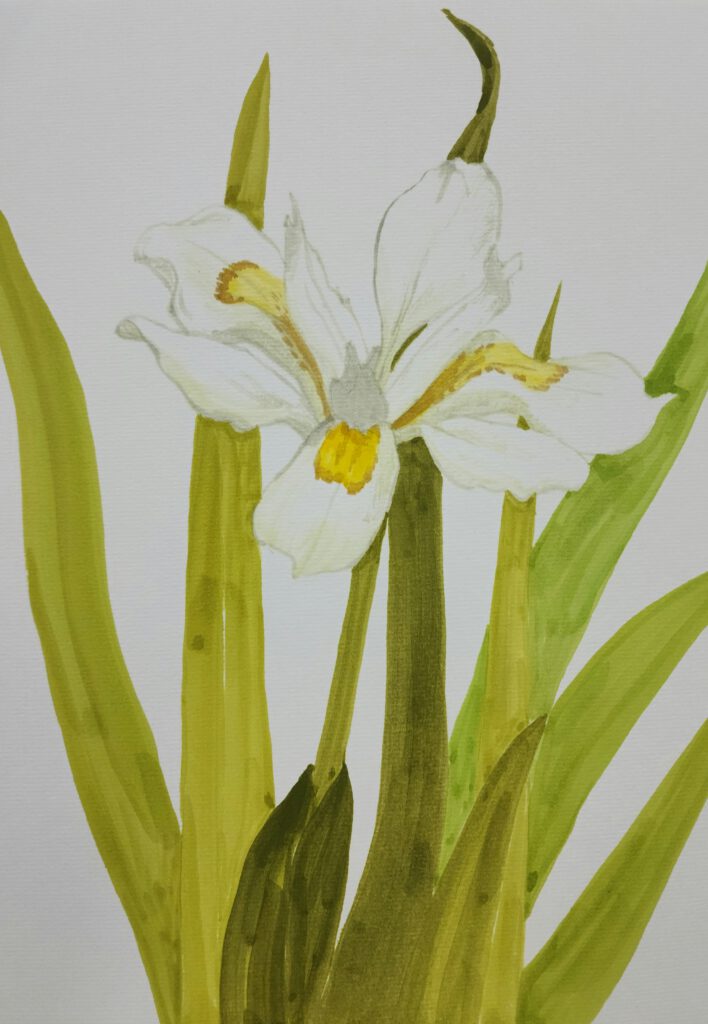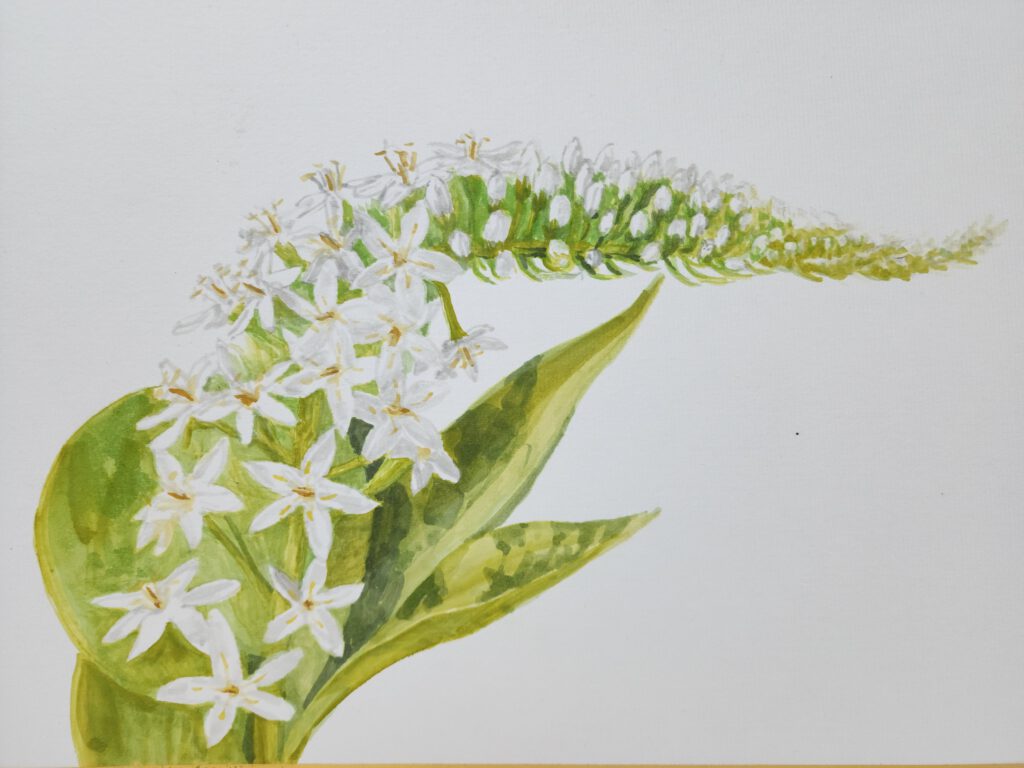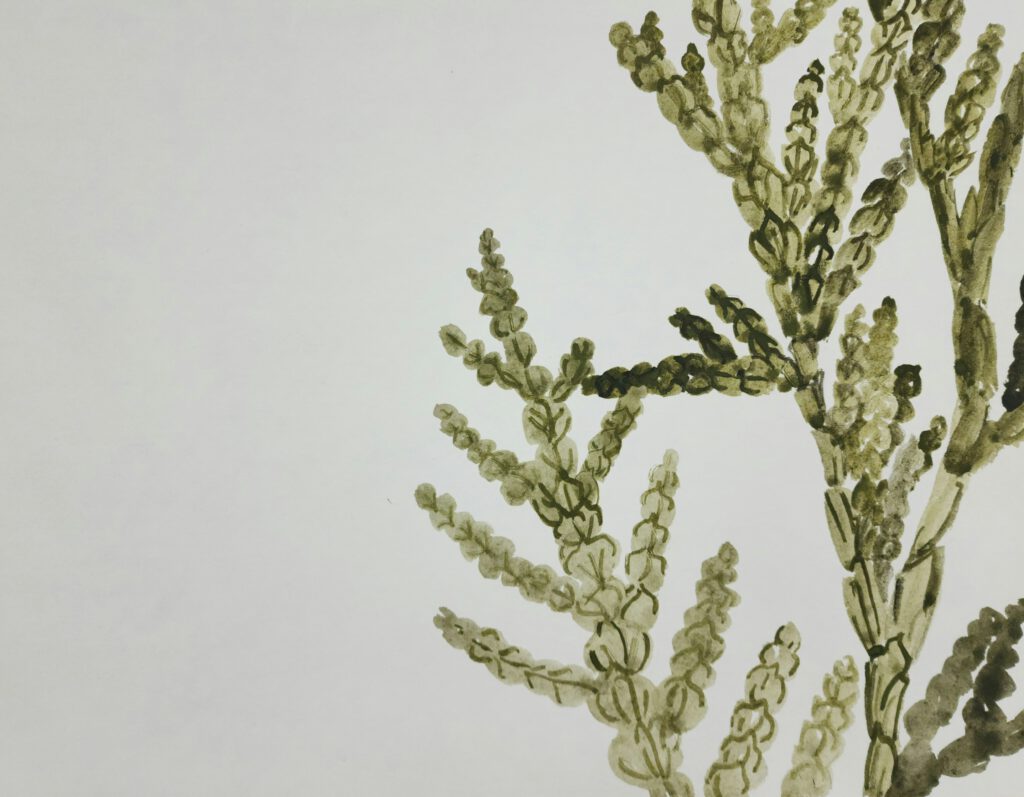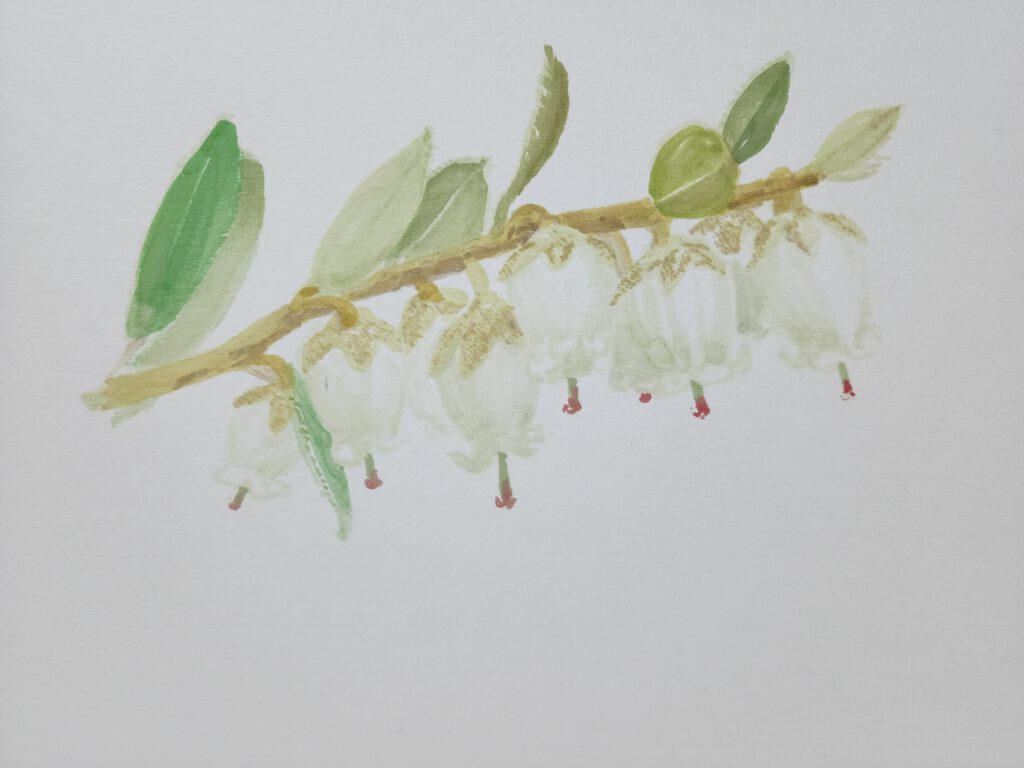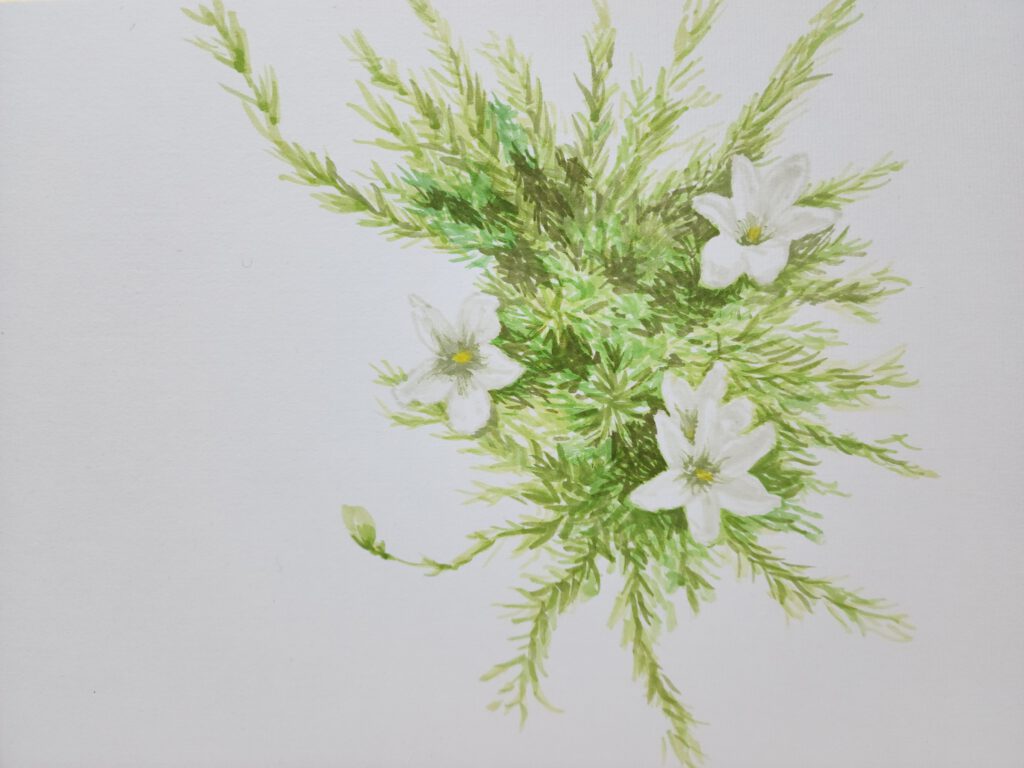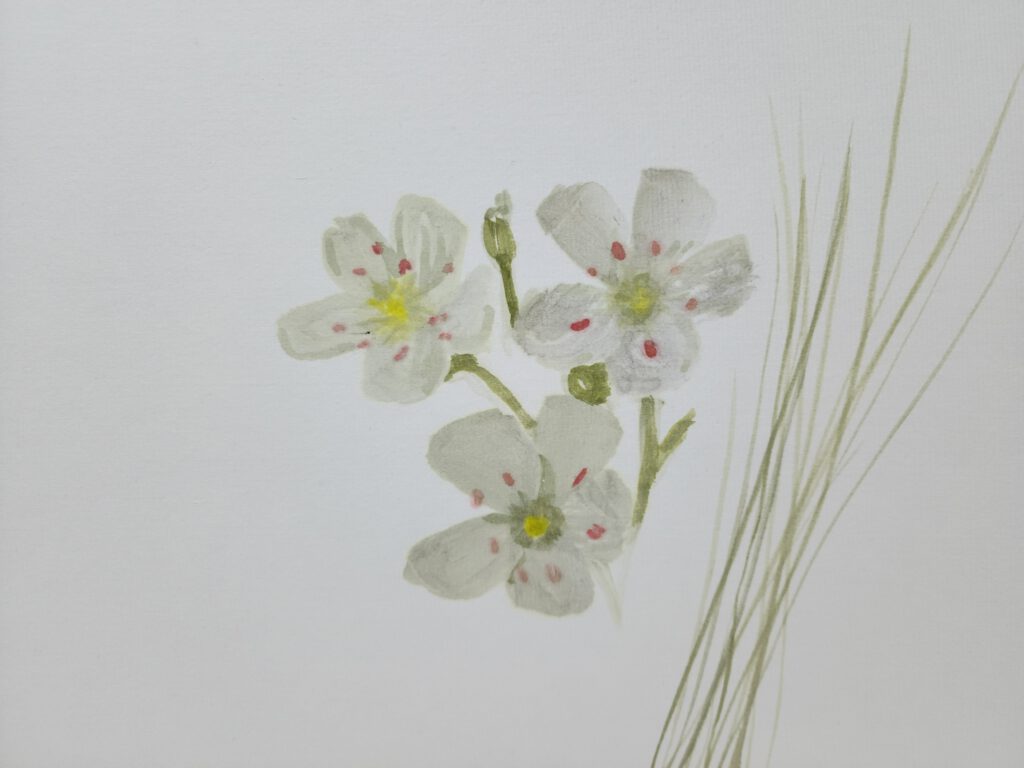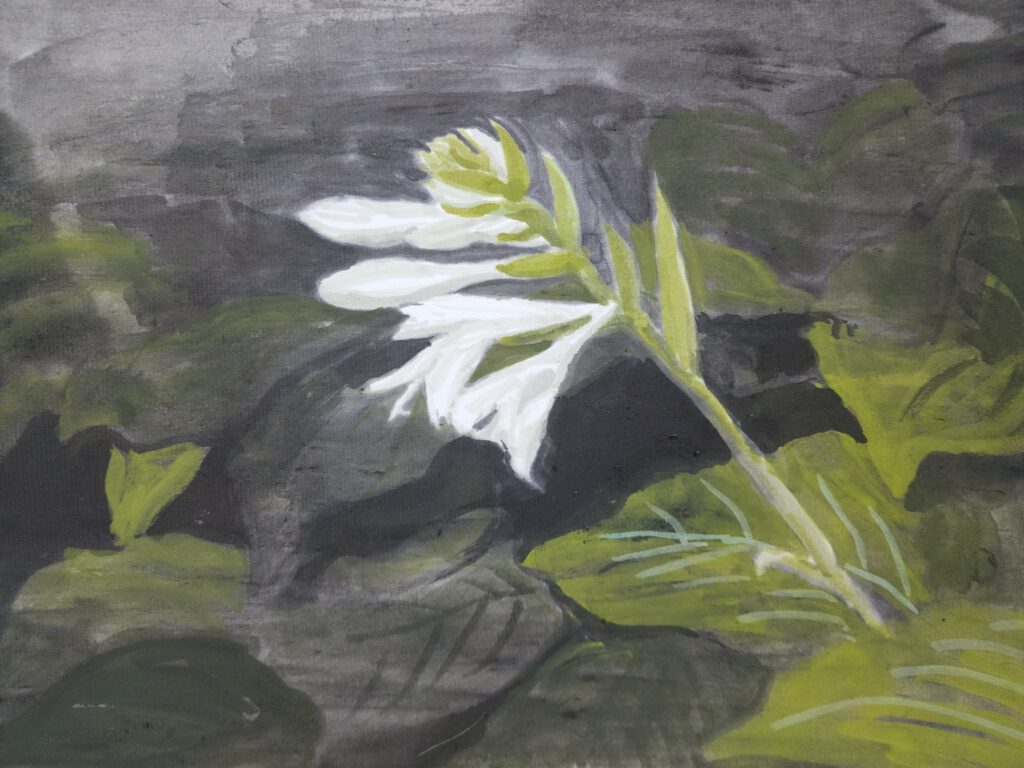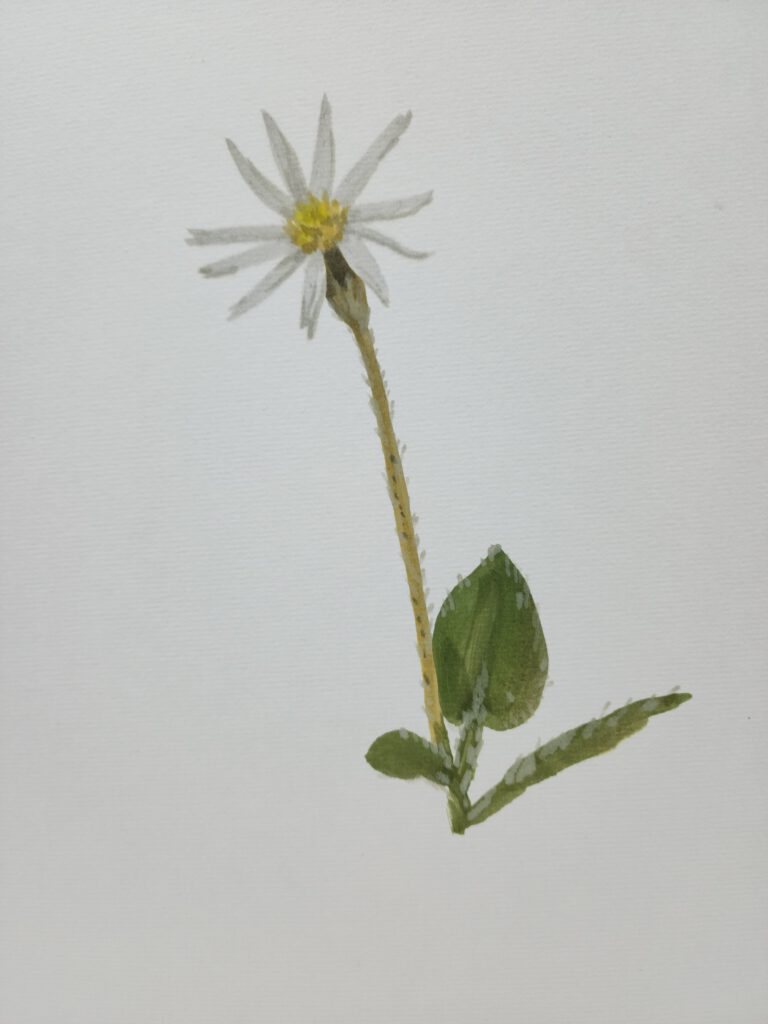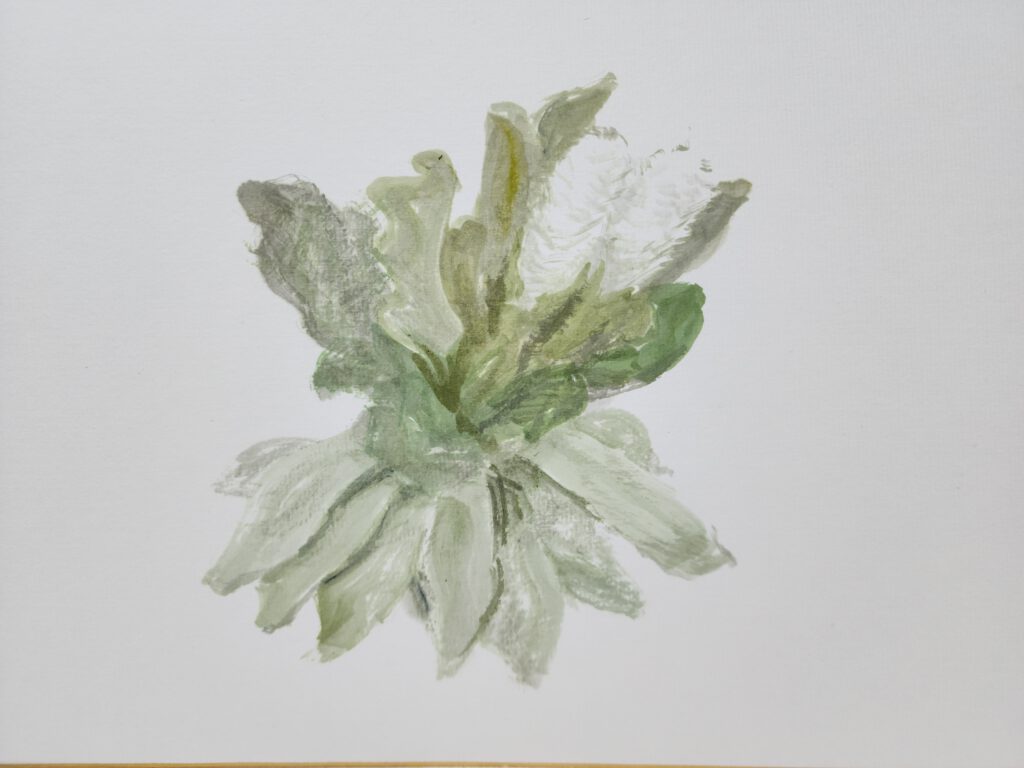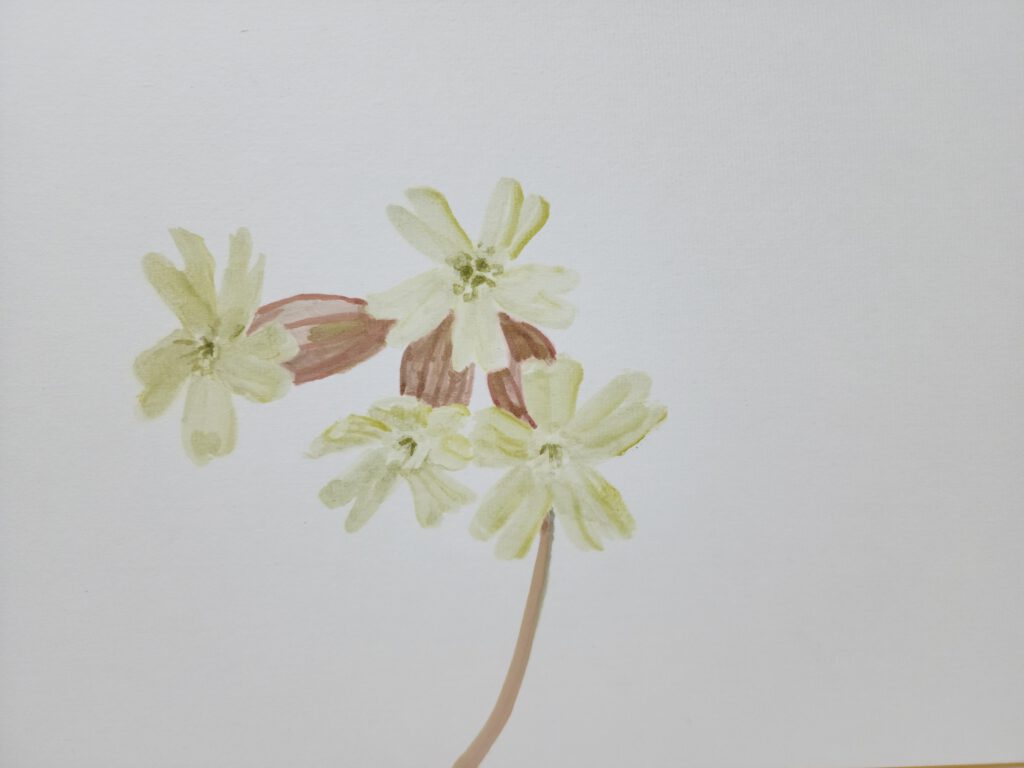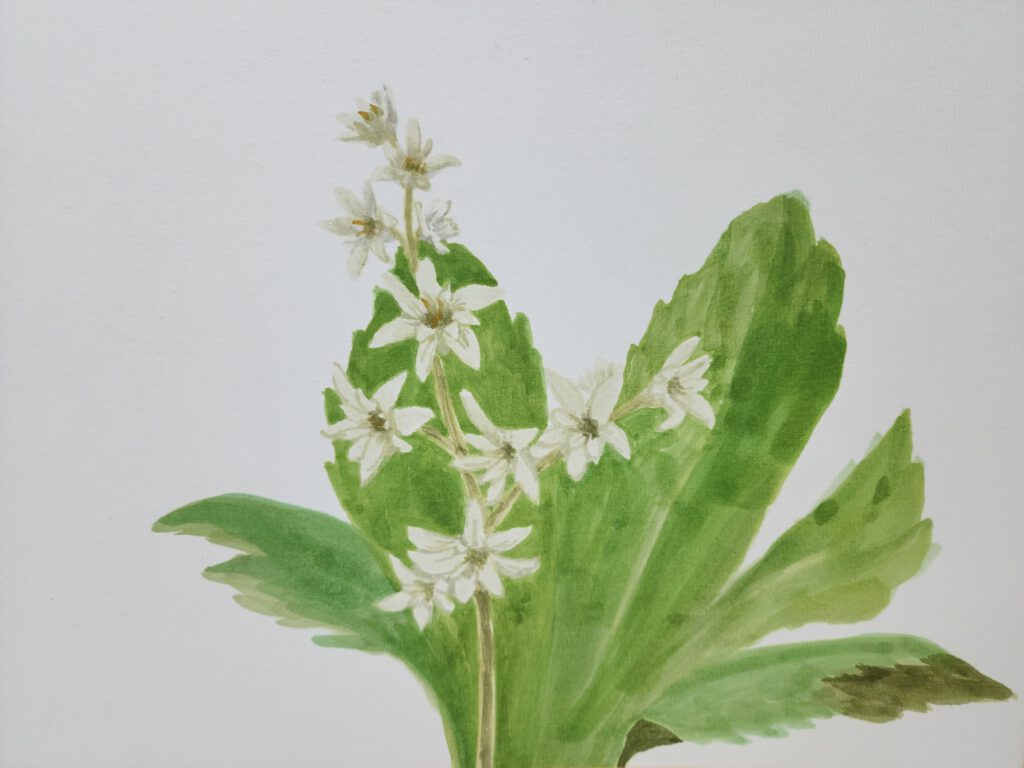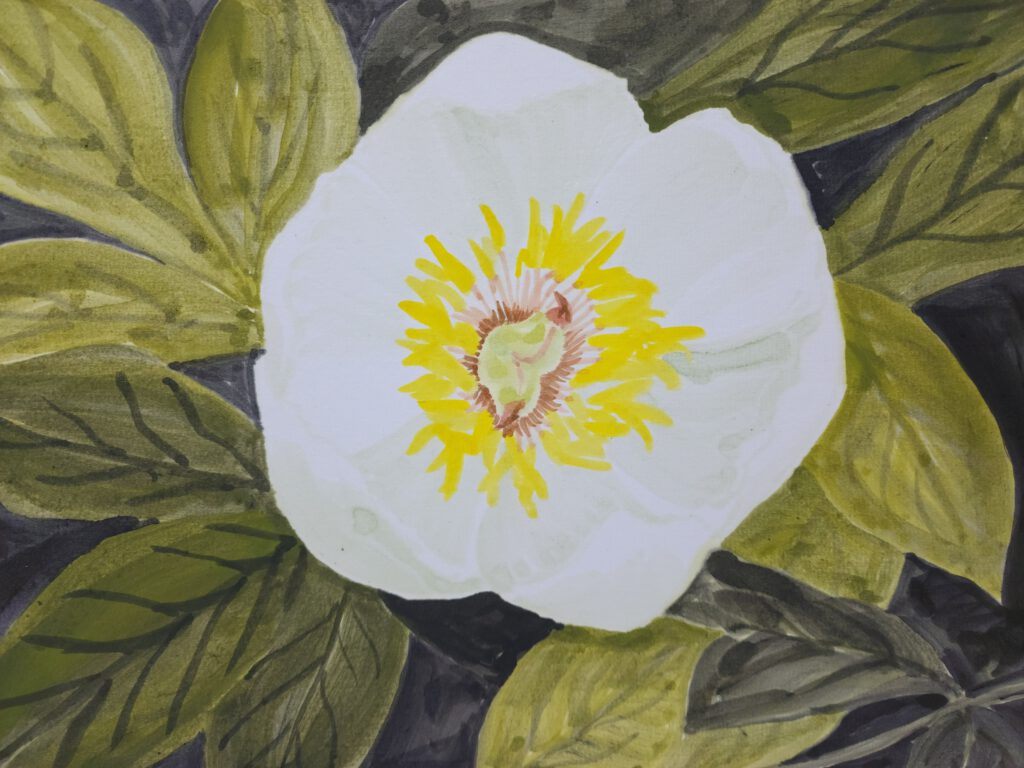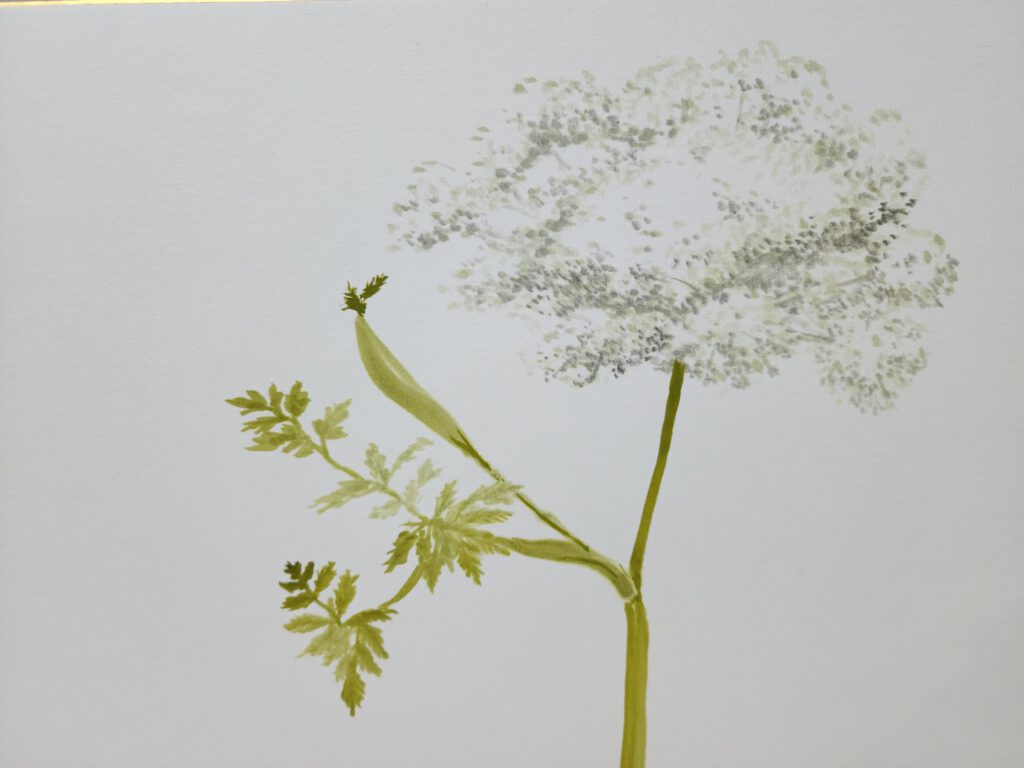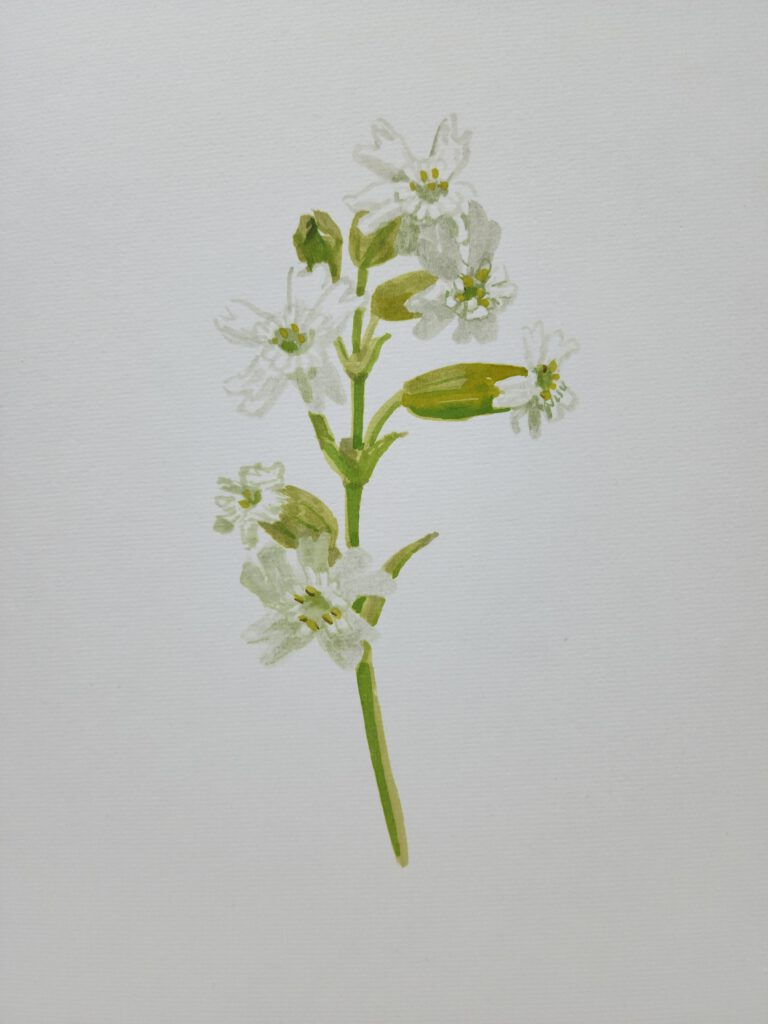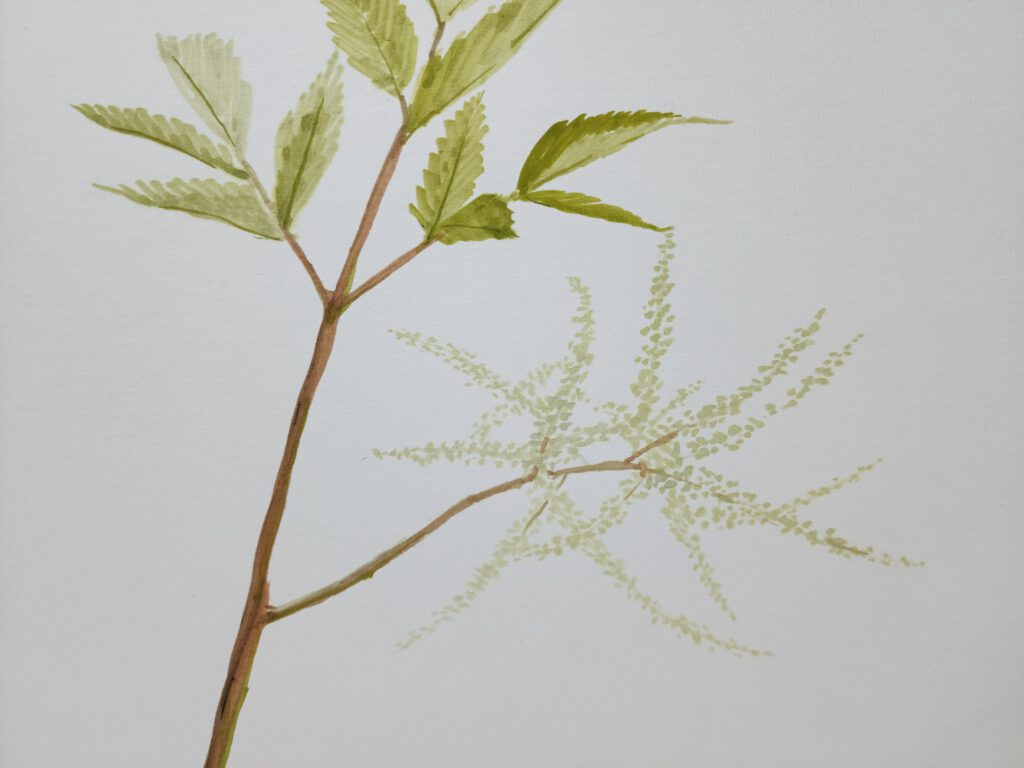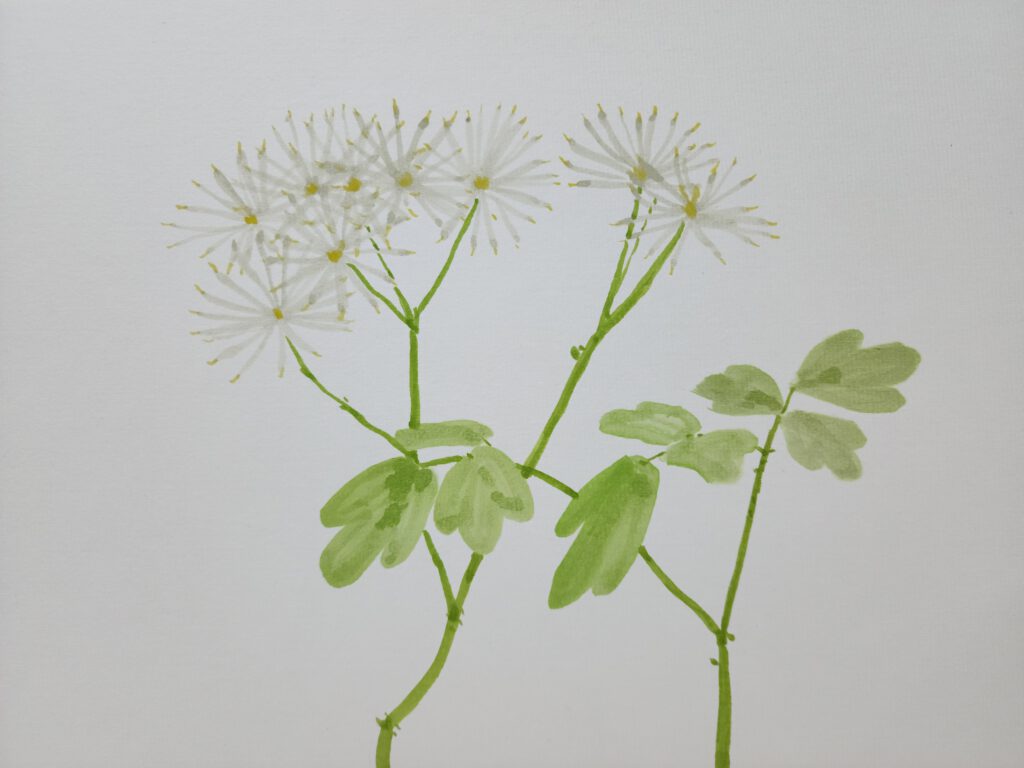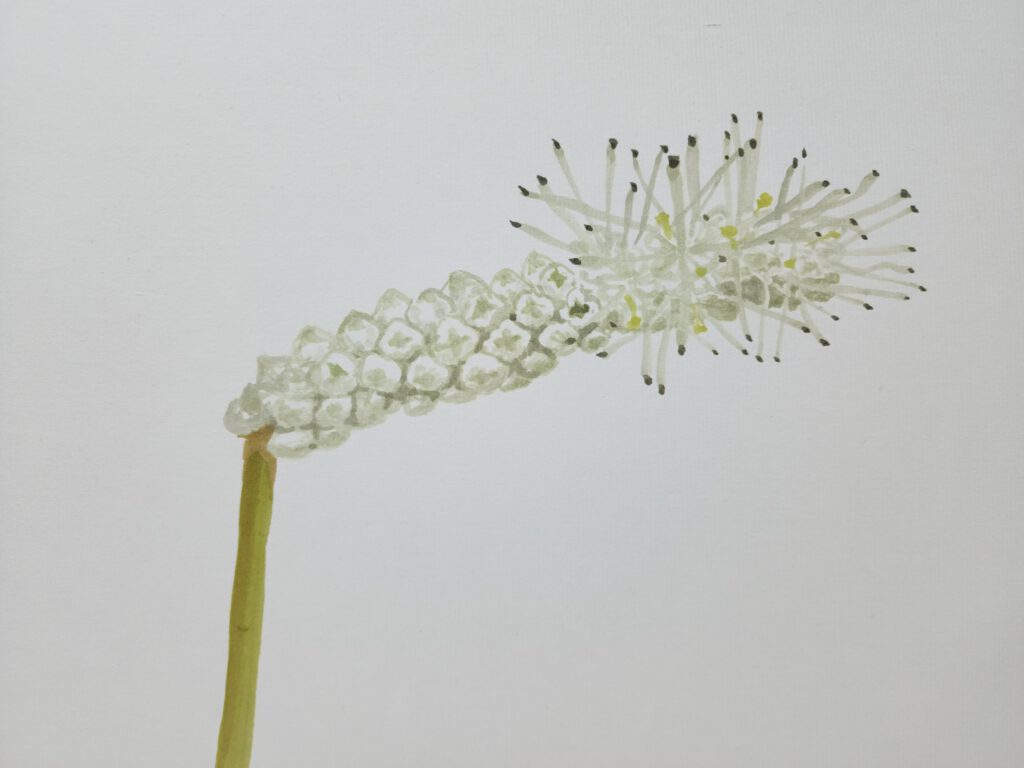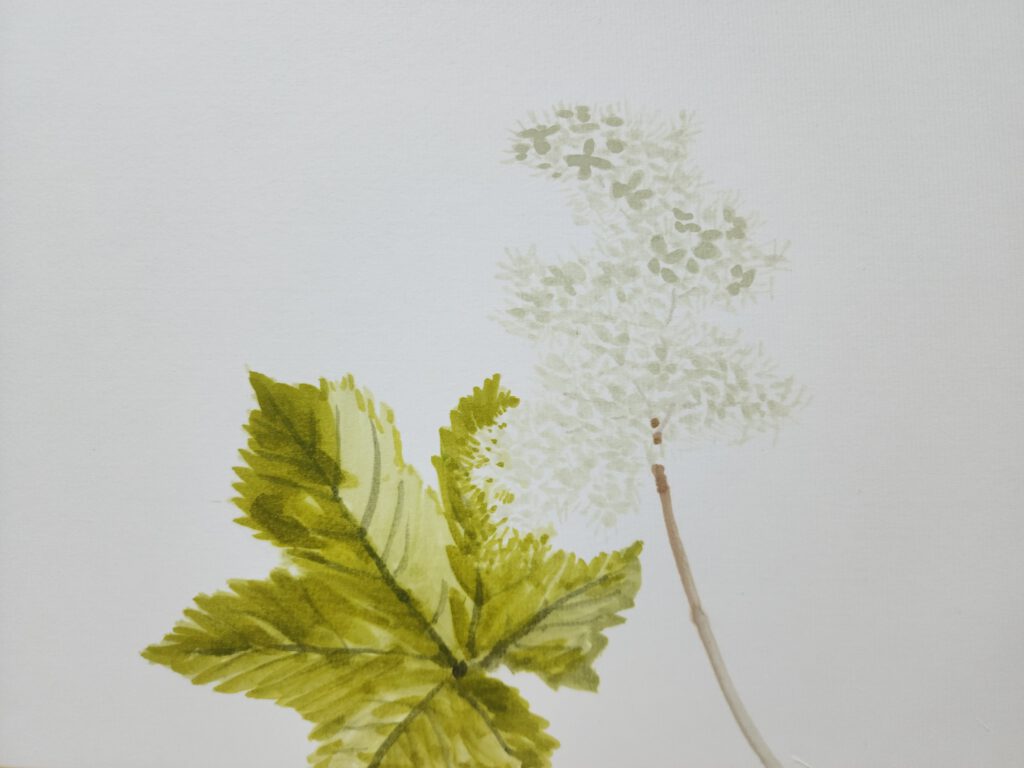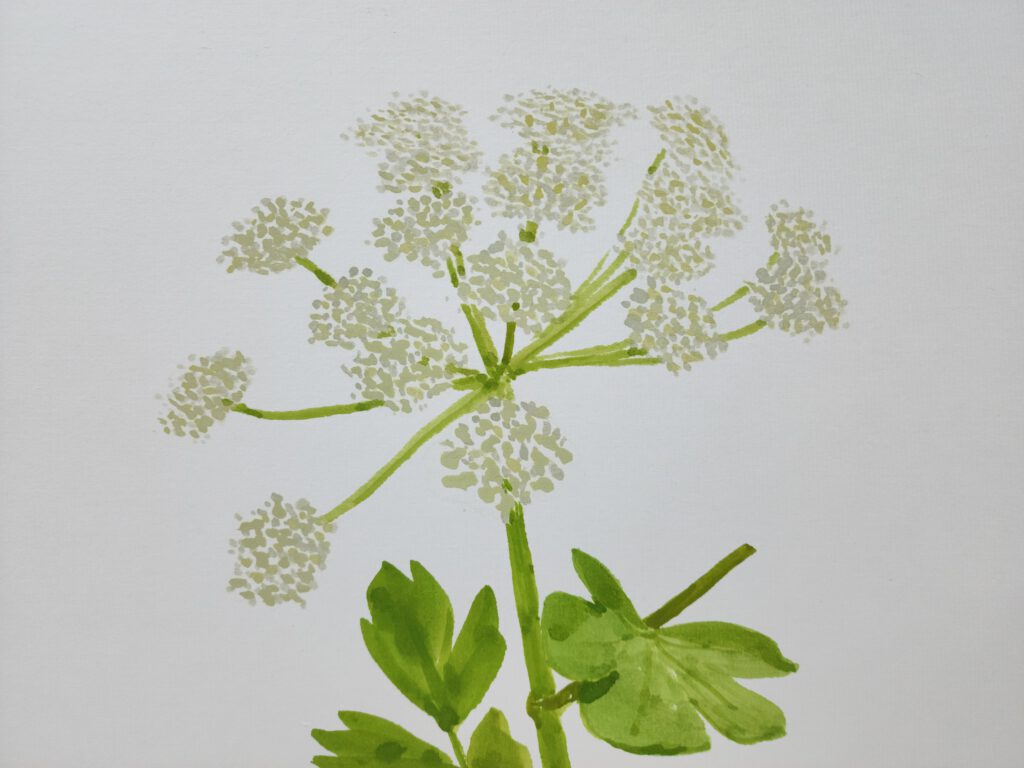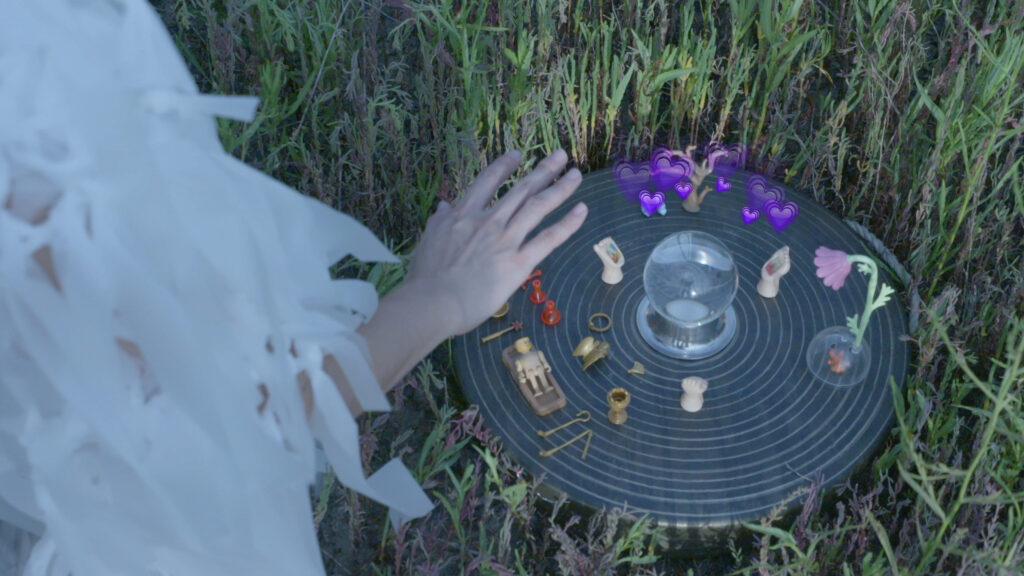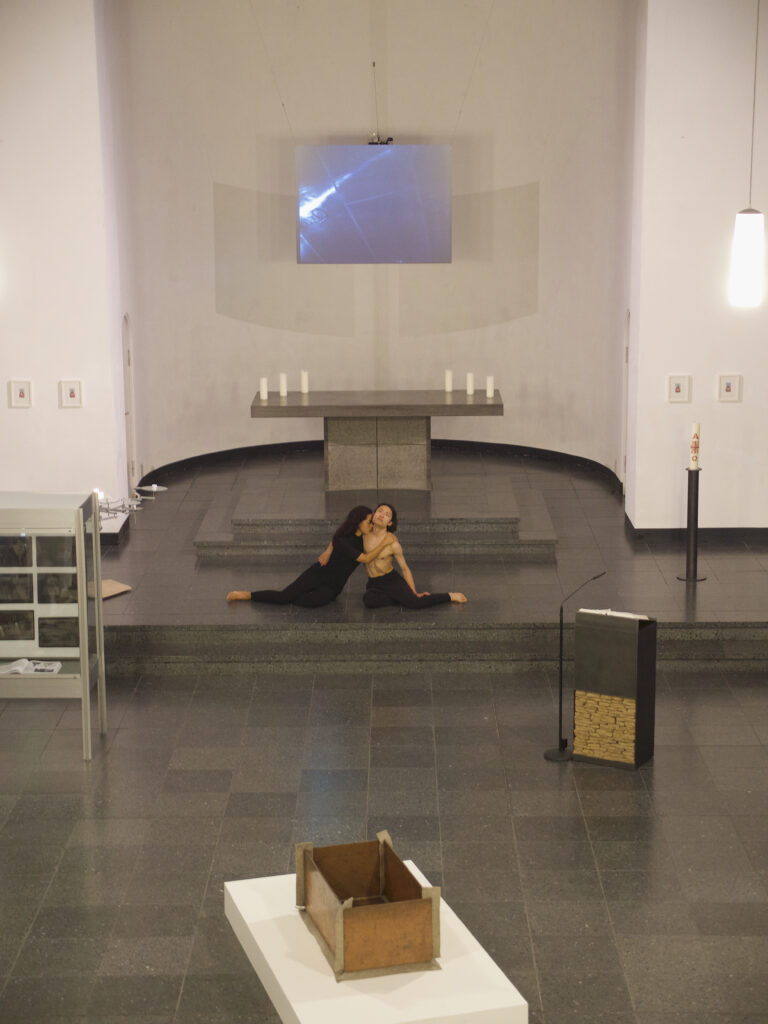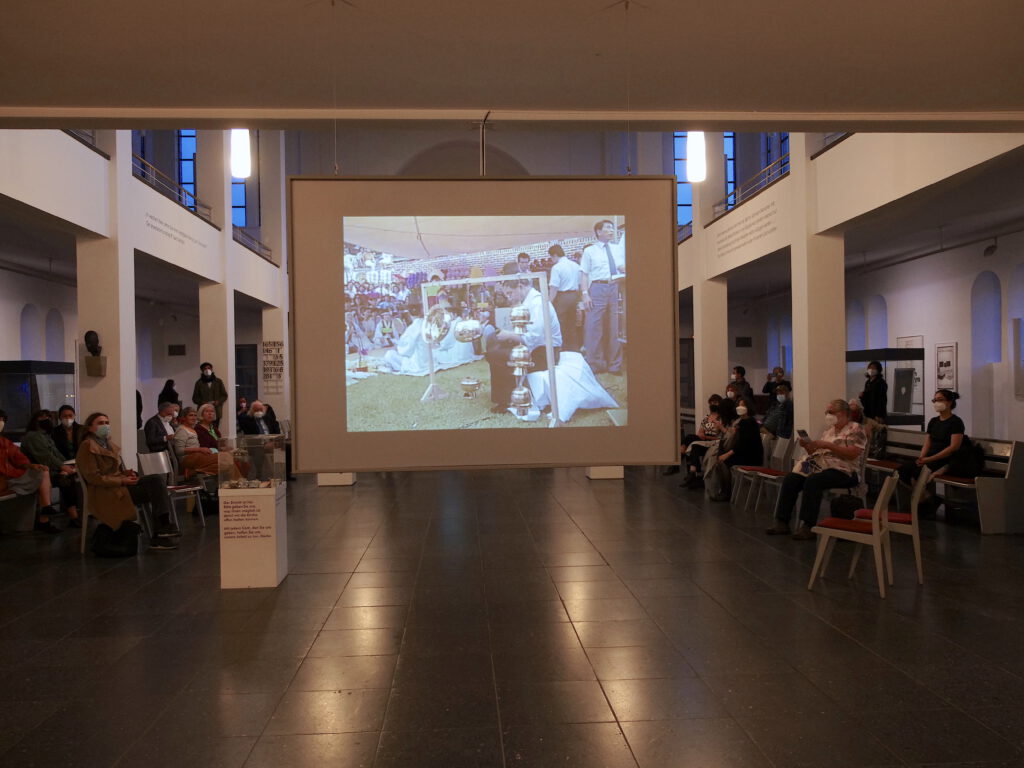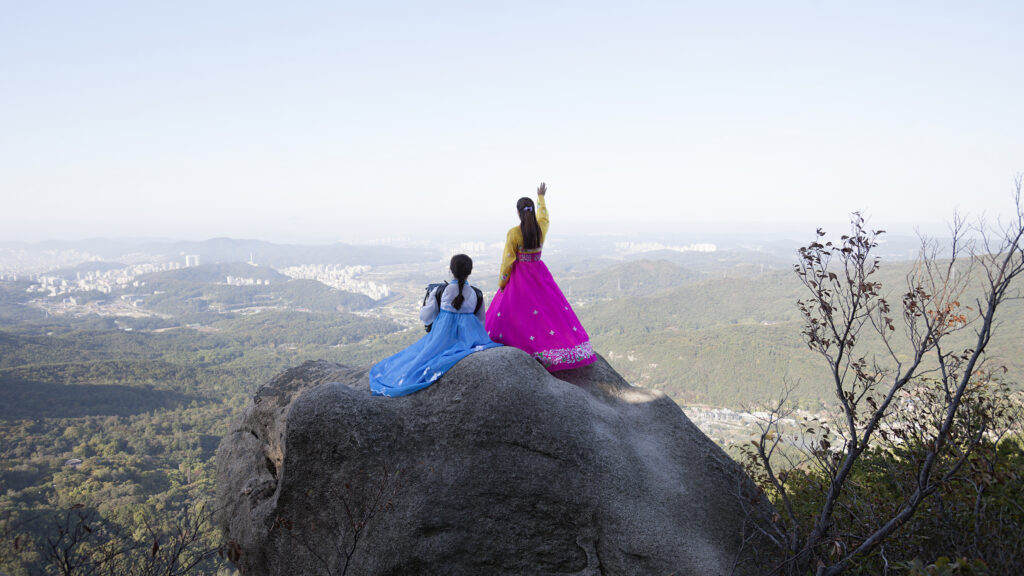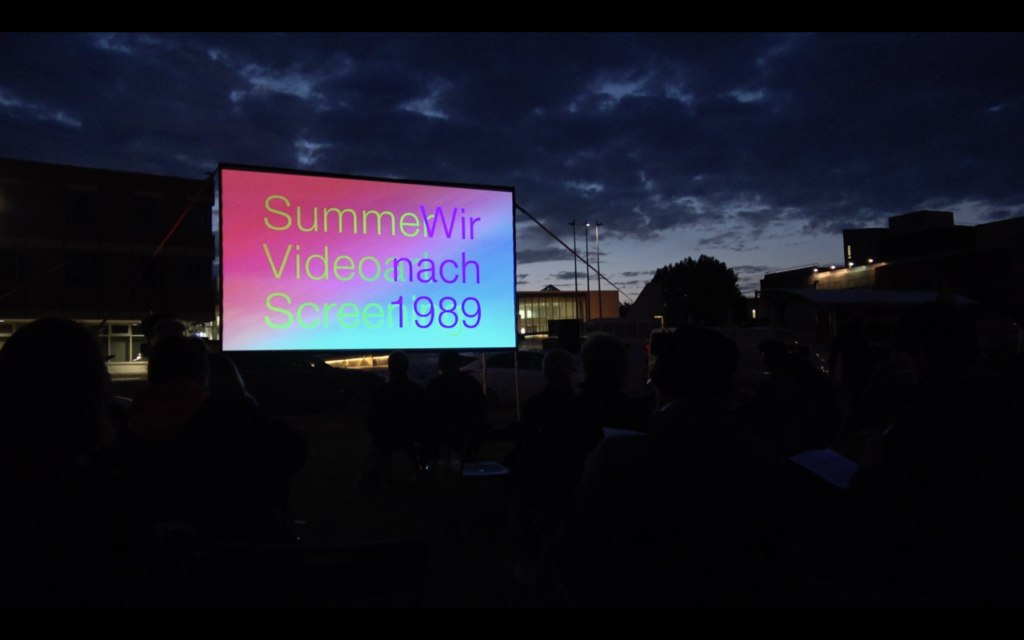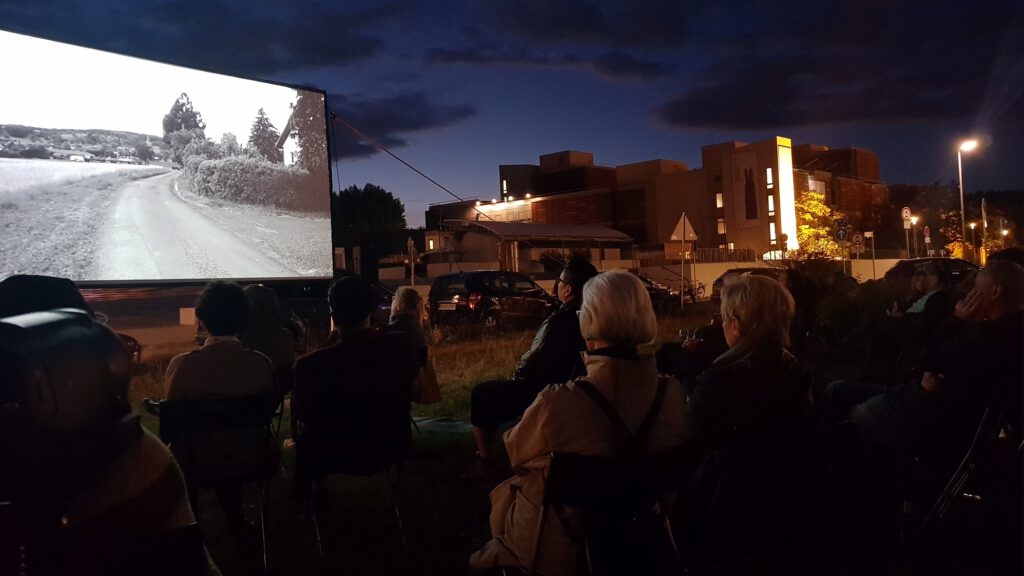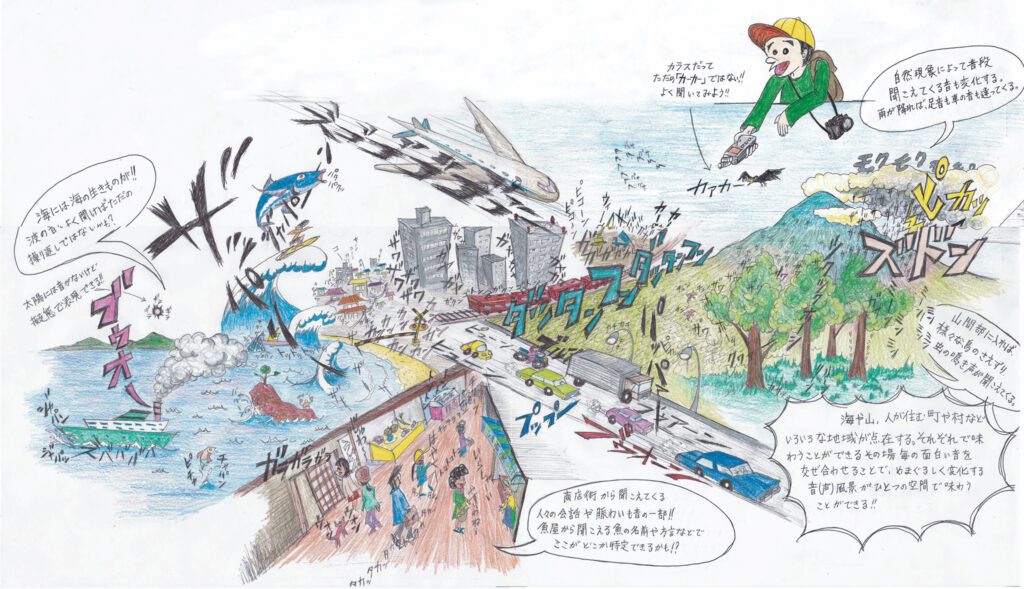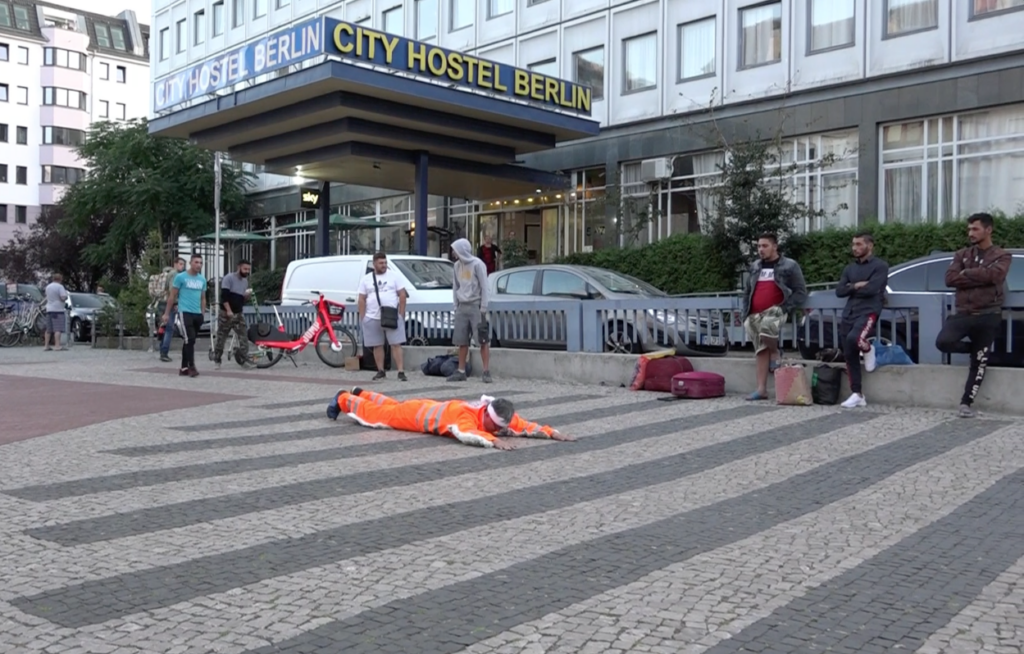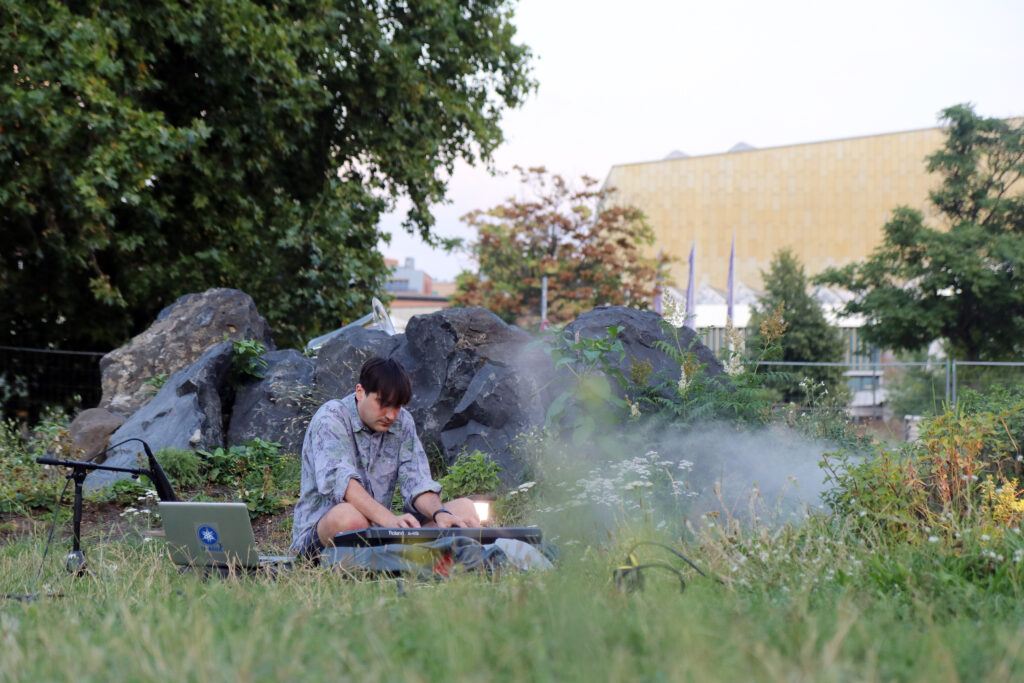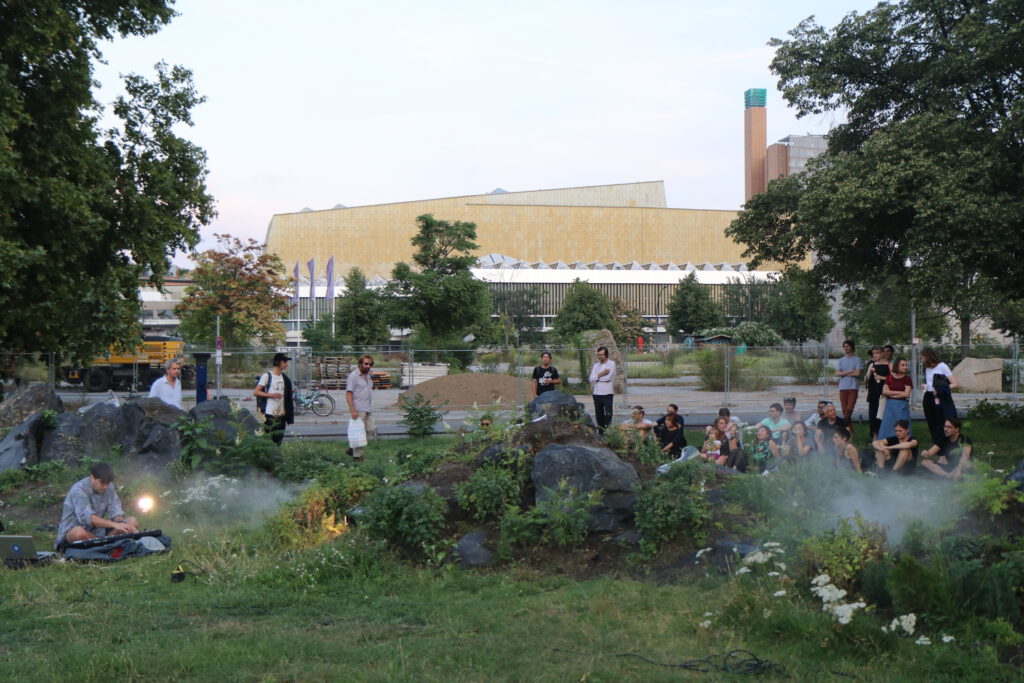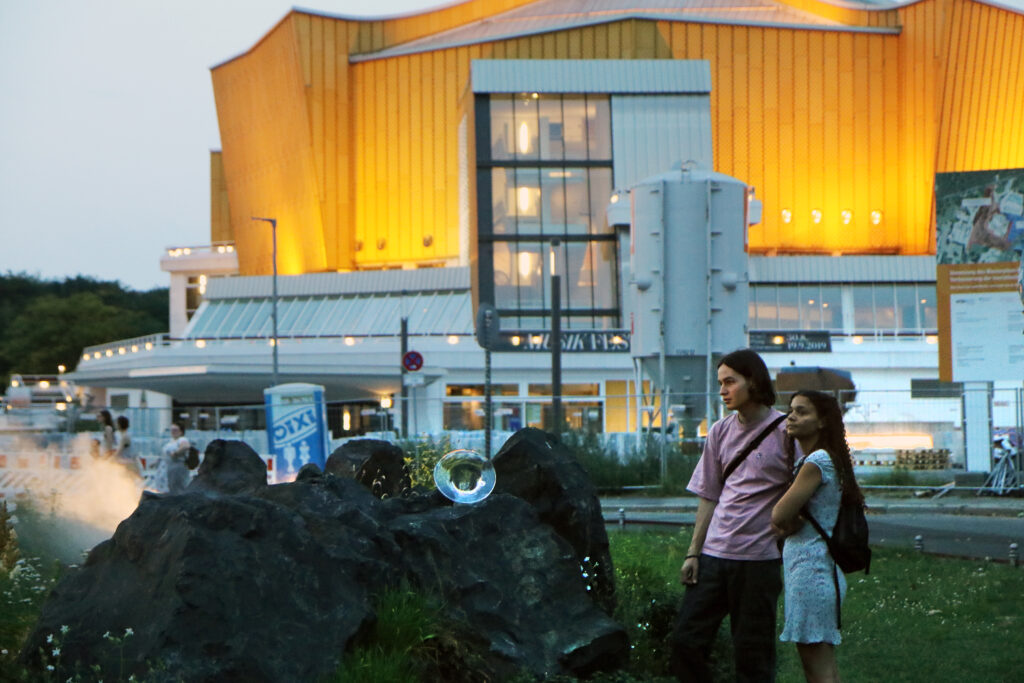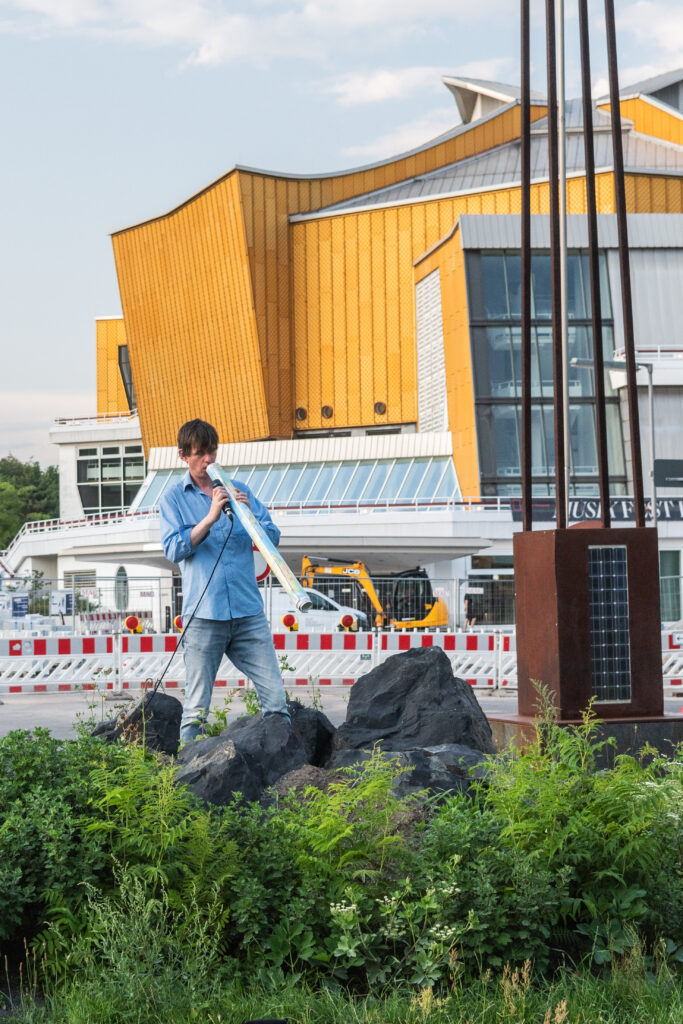News
Catalog - Das Dritte Land between Poetics and Politics
Das Dritte Land between Poetics and Politics
On the occasion of the two-year presence of the artists‘ garden „Das Dritte Land“ by the Korean artists Kim Seung Hwoe and Han Seok Hyun at the Berlin Kulturforum and its relocation to the Petersberg in Erfurt on the initiative of the Kunsthalle Erfurt, the catalogue „Das Dritte Land : between Poetics and Politics“ has been published.
The publication documents the creation of this garden – which, as a work of art, unfolds a meaning that deals with the historical dynamics of overcoming borders – as well as its development in Berlin to date. In a series of essays, curators and scholars examine Das Dritte Land from art historical, transcultural, political and aesthetic perspectives. Although the garden changes its appearance with the seasons, as a work of art in public space it always remains a forum for encounters and a refuge in the centre of the city.
The publication is available from the webshop of the Erfurter Kunstverein, the Angermuseum Erfurt and the Kunsthalle Erfurt.
Opening "Das Dritte Land" on October 3, 2022 in Kunstmuseum Erfurt, Germany.
Opening „Das Dritte Land“ on October 3, 2022 in Erfurt, Germany.
Das Dritte Land, the artists‘ garden by Han Seok Hyun and Kim Seung Hwoe, has moved from Berlin’s Kulturforum to Erfurt’s Petersberg (below the Martinsbastion of the Petersberg Citadel) on the initiative of the Kunstmuseen Erfurt and the Erfurt Kunstverein. From a distance, the garden looks like a mountain landscape. The interplay of the fog rising from the ground in the morning and evening with the basalt-shaped mountains is reminiscent of the picturesque perspective of Korean landscape painting from the Joseon period. Since April 2022, 35 different species of wild plants from North and South Korea have been growing in this garden. The stone settlements quote the Baekdudaegan Mountains, whose mountain range stretches from the north to the south of Korea. It connects Korea, which has been divided for more than 60 years; its flora forms a bridge, an expression of the common botanical heritage. Han Seok Hyun and Kim Seung Hwoe have created a third nature with their artist garden, in which symbolically the power of nature triumphs over the painful presence of the political division of the Korean peninsula.
Thanks to the sponsors:
Korea Art Management Service
Ministry of Culture, Sports and Tourism, Republic of Korea
Ministry of Unification, Republic of KoreaThüringer Staatskanzlei
Korea Foundation
Kunstmuseen Erfurt, The municipality of Erfurt
Erfurter Kunstverein
Online lecture event for the publication about the artists' garden "Das Dritte Land"
Lecture event
On 9 December 2021, at 10 am, a video conference (Zoom meeting) was held to accompany the publication „The Third Land between Poetics and Politics“, organised by the Kunsthalle Erfurt and the Erfurter Kunstverein with the kind support of the Korea Art Management Service and the Ministry of Culture, Sports and Tourism of the Republic of Korea.
Speakers:
Prof. Dr. Jeong-hee Lee-Kalisch (Art Historian, East Asian Art History (ret.), Freie Universität Berlin) used the concept of „true-view“ landscape painting and the cosmological idea of „bones and veins“ in Korean garden aesthetics to show how the artist garden „The Third Land“ aesthetically reinterprets Korean geography and art history and charges it with energy.
Dr. Jung-Hwa Kim (landscape historian, postdoctoral researcher, Institute of Art History in Florence – Max Planck Institute) spoke about shifts in the meaning of transnational plant transfer between Germany and Korea in the 19th century and in the present, using selected examples from the Botanical Garden and the Ethnological Museum in Berlin as well as the „Third Land“.
Prof. Dr. Michael Mussong (forestry graduate, Eberswalde University for Sustainable Development) reported on his last research trip to North Korea and his impressions of the North Koreans‘ relationship with nature and ecology.
The event was moderated by the curator, Keumhwa Kim (curator and art historian, Berlin).
Concept
„Das Dritte Land“, the artist garden of Han Seok Hyun and Kim Seung Hwoe, winners of the Unity Prize of the Federal Agency for Civic Education 2020, has moved from the Berlin Kulturforum (May 2019- April 2022) to Erfurt’s Petersberg (At the foothill of the Martinsbastion of the Petersberg Citadel) on the initiative of the Kunstmuseen Erfurt. In this garden, 35 different species of wild plants from North and South Korea have been growing since April 2022. From a distance, the garden looks like a mountain landscape. The interplay of the water vapor rising from the ground with the mountains formed from basalt is reminiscent of the picturesque perspectives of Korean landscape painting from the Joseon period.
The two artists: Han Seok Hyun and Kim Seung Hwoe explicitly refer to the painting Inwang jesaekdo (1751). The prominent rocks of Inwang Mountain, the fog and the trees, created in simple but bold composition, allow a panoramic view of the mountain of Seoul city. The black and white contrast of the ink painting emphasizes a curved forest path and captures the moment just after a rain shower. The magic of this painting, which gives the viewer the feeling of walking in a real and surreal landscape, is resurrected by the artists in their garden: White-flowered wildflowers from South and North Korea, the mountains of Baekdu-daegan recreated from black basalt stones, and the water vapor rising from the ground are the main elements from whose interplay Das Dritte Land emerges.
In Han Seok Hyun and Kim Seung Hwoe’s garden, plants that come from either North or South Korea are to grow together. Their garden creates the image of a paradisiacal Korea. In the sense of Michel Foucault, it is a place of heterotopia, where the real collides with the non-real, seemingly immovable facts and untenable utopias stand side by side. His starting point is the mountain range „Baekdu-daegan“, which stretches over 1470 kilometers across the Korean peninsula – from Mount Baekdusan in the north to Mount Jirisan in the south. „Baekdu-daegan“ is considered the backbone of Korea, forming mountains, valleys and rivers, shaping flora and fauna, and even influencing the culture and language of Korea.
Location
The artist garden, „Das Dritte Land“ by Seok Hyun Han and Seung Hwoe Kim was opened on Matthäikirchplatz at Kulturforum on May 23, 2019 and stood there until April 15, 2022. In the 30th anniversary of the fall of the Berlin Wall, the artists‘ garden Das Dritte Land speaks of the history of Germany and the present of Korea as a place for political reflection. With the project, Korean artists Han Seok Hyun and Kim Seung Hwoe want to bring the existence of borders and the hope of overcoming them back into the public consciousness.
The Kulturforum is a place that reflects the eventful history of the divided Berlin during the Cold War in a particularly multifaceted way. The Wall ran in the immediate vicinity. The Forum was built as a counterpart to the Museum Island in East Berlin and was intended to become a symbol of West Berlin. Matthäikirchplatz, which had been laid out by the architect Friedrich August Stüler as a paradisiacal front garden of St. Matthäus-Church and was transformed into a narrow traffic circle in the post-war period, has become a stage with the Third Land, on which the Korean wild plants stage a play of arrivals and departures in the rhythm of the seasons.
The construction of the garden at the Kulturforum was made possible by a successful crowdfunding campaign. Over 160 supporters worldwide donated more than 30,000 euros within thirty days for the transport and care of the plants and the construction of the garden.
Cooperation partner: St. Matthew’s Foundation
Realization: Ingo Bauditz Garten- und Landschaftsbau GmbH
Consulting: FUGMANN JANOTTA PARTNER, Landscape Architects I Landscape Planners
Plants: Aboretum Baekdudaegan (백두대간식물원), South Korea
Technical maintenance: Uwe Rommel
Assistance: Caro Greifenstein, Hwisu Yoo
Press: Corinna Wolfien, Dahee Seo
Visual Identity: Young Sam Kim
Documentation: Dahahm Choi, Christian Frey, Dongryoung Han, Dahee Seo
Garden maintenance: Beate Rhode, Clemens Wilhelm
Location
On the initiative of the Kunstmuseen Erfurt, Das Dritte Land was moved from the Berlin Kulturforum to Erfurt’s Petersberg (at the foot of the Martin bastion of the Petersberg citadel), with a view of the Brühl district of the city center, the Erfurt Opera, the cathedral and the Severi Church. On October 3, 2022, the artist garden was opened as part of the official celebrations for the Day of German Unity under the motto „growing together“. Since then, 35 different species of wild plants from North and South Korea have been growing in this garden. From a distance, the garden looks like a mountain landscape. The interplay of the water vapor rising from the ground and the mountains formed from basalt is reminiscent of the picturesque perspectives of Korean landscape painting from the Joseon period.
„Das Dritte Land in Erfurt will not be one garden artwork among many in Erfurt. It will invite not only contemplation but also use. Meetings will be held there, films will be shown and music will be played. It will become a lively place of cultural and political exchange, also of remembrance, not least of the fascination that emanates from such a landscape „en miniature“ and the plants growing here in the change of the seasons“ (quote: Dr. Kai-Uwe Schierz, the director of the Kunstmuseum Erfurt from the foreword of the catalog : Das Dritte Land zwischen Poetik und Politik)
The transfer of the Artists‘ Garden to Erfurt was made possible by the kind support of the Korea Foundation, Thuringia State Chancellery, Erfurt City Council (Garden and Cemetery Office, Erfurt Art Museums) and the Erfurt Art Association. The opening of the Artists‘ Garden in Erfurt was kindly supported by the Ministry of Unification Republic of Korea.
Organizer: Kunsthalle Erfurt, Erfurter Kunstverein (Erfurt Art Association)
Realization: Garden and Cemetery Office of the City of Erfurt
Assistance: Yujin Lee
Plant consulting: Byunlchorong Wildflower(별초롱야생화), Hongcheon, South Korea
Garden maintenance & documentation: Hye-Kyoung Choi, Garden and Cemetery Office of the City of Erfurt
Flowers
Program
Neue Rituale der Heilung / Summer Videoart Screening
New Rituals of Healing / Summer Videoart Screening
Participating artists:
Nam June Paik (A Pas de Loup), Alisi Telengut, Isaac Chong Wai, Dew Kim, Marco Montiel-Soto, Markus Hanakam & Roswitha Schuller, Sara Sejin Chang (Sara van der Heide), Clemens Wilhelm & Jan Martinec.
The video art screening „New Rituals of Healing“ explores how rituals as symbolic acts and sources of inspiration are contextualised in different performative formats and practised as catalysts for inner healing in different cultural circles.
On 20 July 1990 in Seoul, Nam June Paik, the pioneer of video art who had already combined technology and spirituality in his artistic practice in the 1970s, staged the performance „A Pas de Loup“, which was conceived as a Korean shamanic ritual kut in honour of Joseph Beuys. She thus fulfilled an agreement between the two artists to perform a shamanic ritual together, which was no longer possible due to Joseph Beuys‘ death. Four years after Beuys‘ death, Paik single-handedly fulfilled his promise. Paik took a bowl of uncooked rice and sprinkled some of it over a photo of Beuys. In addition to the typical elements of the Kut – a table with food as an offering and an exorcism – he used a broken piano, a violin and 16 television housings to create a new Kut that would bring back the soul of Joseph Beuys.
The participation of Berlin and international artists such as Isaac Chung Wai, Alisi Telengut, Sara Sejin Chang, Horny Honey Dew, Markus Hanakam & Roswitha Schuller, Clemens Wilhelm & Jan Martinec, Marco Montiel-Soto in the project takes up the central impulse of the action and creates not only a posthumous international dialogue between Beuys and his student Nam June Paik, but also a dialogue between the two artists and the young generation of artists currently working in the field of art.
This generation of artists finds in ritual and shamanism a critical projection surface for themes such as the environment, post-colonialism, society and identity.
We after 1989: Summer Videort Screening
Summer video screening
We after 1989
Participating artists:
Clemens Wilhelm, Mischa Leinkauf, Im Heung Soon, Choi Sung Rok, Henrike Naumann, Jeewi Lee, Anne Dukhee Jordan, Jeong Ka Hee, Kim Lyang, Young Ho Lee
Since the end of the Cold War, borders have never seemed more relevant than during the coronavirus pandemic. Since then, we have been confronted with a dystopian vision of the future in which not only political, but also social and societal borders have become more pronounced. As part of the network meetings („We after 1989“), which have been taking place since December 2019, German and Korean artists have been working together with historians and curators to explore borders as spaces of experience. As an interim result of this interdisciplinary exchange, we would like to organise a two-day screening in which artists from Germany and Korea will present their video art, which deals with visible and invisible borders as well as border demarcations under social, biological and political aspects.
The artists‘ garden „Das Dritte Land“ serves as an open platform for artistic explorations of the real and imaginary spaces between nature and borders. In the work of the two Korean artists Seok Hyun Han and Seung Hwoe Kim, plants from North and South Korea will grow together in the centre of the cultural forum from May 2019. Since 2019, „Das Dritte Land“ has been organising a series of performances that address the question of how artistic reflection on nature in border areas can influence social consciousness. As a growing, processual art in public urban space, the garden has developed into a stage on which the invited artists performatively explore the themes of border/defence, nature/environment, utopia/dystopia. Visitors to the garden are invited to interact and participate.
The project was realized in cooperation with SEMA: Seoul Museum of Art and with the kind support of the Charlotte and Hans Krull Foundation, the St. Matthäus Foundation and the Mobile Kino Berlin.
ATSUSHI FUKUNAGA / DUET IN NO - MAN`S - LAND
#4 ATSUSHI FUKUNAGA
For two days, Japanese artist Atsushi Fukunaga will present a sound installation as part of „The Nature of Action“ in the artists‘ garden Das Dritte Land. The installation consists of a multitude of onomatopoeic words that mimic the sounds of nature. For the garden, Fukunaga collected special sounds of insects and birds that live together in Korea and Japan, and had them imitated onomatopoeically by Koreans and Japanese in Berlin. Although it is the same bird, the onomatopoeia is different in each country because culture and language influence the perception of what is heard. Fukunaga’s theme is the invisible border between Japan and Korea, which seems to be getting tighter as a result of the trade dispute between the two countries. The artist constructs a soundscape in which Japanese and Korean nature sounds interact in the artist’s garden. He dreams of a utopia in which the political and social boundaries between the two countries dissolve into Das Dritte Land.
Atsushi Fukunaga (*1980 in Hiroshima, lives and works in Berlin) explores onomatopoeia in different cultures and the anthropology of language. He is interested in the variety of linguistic imitations of extra-linguistic sound events that people produce in their different languages, with the English word onomatopoeia having its roots in the ancient Greek word ὀνοματοποιία, meaning „word creation“. Atsushi Fukunaga invites people from different countries to reproduce the „sounds“ of the city and nature in their own language. He uses these sounds to create his own onomatopoeia, which he stages in sound installations, usually outdoors. Since 2015, he has also created a series of language installations that deal with people’s everyday lives by quoting words and composing new texts from them.
Byung Chul Kim / Frühlingsputz (Spring Cleaning)
#3 Byung Chul Kim
In his performance „Frühlingsputz (eng: Spring Cleaning)“, Byung Chul Kim will walk from the South Korean embassy to the North Korean embassy in the style of a Buddhist pilgrimage „오체투지(五體投地)“. Buddhist monks go on pilgrimage by bowing step by step; through this physically very strenuous way of travelling they try to achieve spiritual goals and show themselves in a state of extreme humility. It takes about 3000 bows to cover the 3 km distance. This arduous path is intended to symbolise the difficult process of reunification.
Byung Chul Kim (*1974 in Seoul, lives and works in Essen) is a South Korean artist who has been working in Germany since 2004. He became known through his year-long work „Hotel Performance“ in Stuttgart and his „Humour Restaurants“, which he has been performing in Germany, Switzerland and the USA since 2014. Themes such as humour, happiness, home and food are existentially transformed through his participatory actions, which he stages in a sometimes rigorous, sometimes humorous manner. His storyboards, drawings and videos have been shown at Kunstverein Zürich, Wiensowski & Harbordin Berlin and the Richmond Art Centre in Richmond, USA.
FRANCESCO CAVALIERE/ Imitatori del Tempo (il tempo sussurrato)
Imitatori del Tempo (il tempo sussurrato)
The Italian composer and sound artist presents a sound performance with piano and three self-made glass horns. His sound is based on recordings of weather imitations from his project „The Weather Imitators, Il Coro delle Intemperie“, which he has been pursuing for two years in various countries: Francesco Cavaliere creates his own graphic notations based on the meteorological data of the places where he is, which he then sets to music and has recorded by choir groups: Singing and whispering, blowing and whistling imitate the endemic weather conditions of each place. With his project, the artist aims to create an anthropology of specific weather sounds.
Francesco Cavaliere (*1980 in Piombino, Italy) explores the relationship between sounds, materials and space. Accompanied by phenomena evoked by glass, minerals and narrative, his work captures the fleeting moment and invites the listener into an imaginative landscape. He lives and works in Siena and Berlin.
David Sherry / Nature of Action
#1 DAVID SHERRY
Growing up on the border between Northern Ireland and the Republic of Ireland, the border was omnipresent for David Sherry and his family. In light of Brexit and the threat of a new hard border between Northern Ireland and the Republic of Ireland, David Sherry presents a performance about his border experiences in „Das Dritte Land“.
The work of David Sherry, born 1974 in Northern Ireland, based in Glasgow, includes drawings, performances, videos, paintings, photography and sound installations, and he is interested in the big and small stories from his everyday life: such as happiness, work, respect. He transforms these into live performances, which have been a central part of his artistic practice for twenty years.
Imprint
Das Dritte Land
Artist garden, basalt, soil, plants from Baekdudaegan(Korea), moist, art in public space (2019-).
Artists: Han Seok Hyun, Kim Seung Hwoe
Curator: Keumhwa Kim
Location: at the foot of Martin’s bastion of Petersberg Citadel, Lauentor, Erfurt (2022).
Matthäikirchplatz, 10785 Berlin – Kulturforum (2019 – 2022)
Visual Identity: Young Sam Kim
Homepage: Supercomputer Studio
Information according to § 5 TMG
Keumhwa Kim
Keum Art Projects
C/O Santa Rita Cultural Office
Adalbertstr. 4th, 1st floor
10999 Berlin
Represented by:
Keumhwa Kim
Sales tax identification number according to §27a Umsatzsteuergesetz: DE294018822
Responsible for the content according to § 55 Abs. 2 RStV:
Keumhwa Kim, Kunstverein Erfurt, Art Museum Erfurt
Texts ©Keumhwa Kim
Images ©Artists, Keum Art Projects
Photos: Clemens Wilhelm, Dahahm Choi, Christian Frey, Dongyoung Han, Dahee Seo
